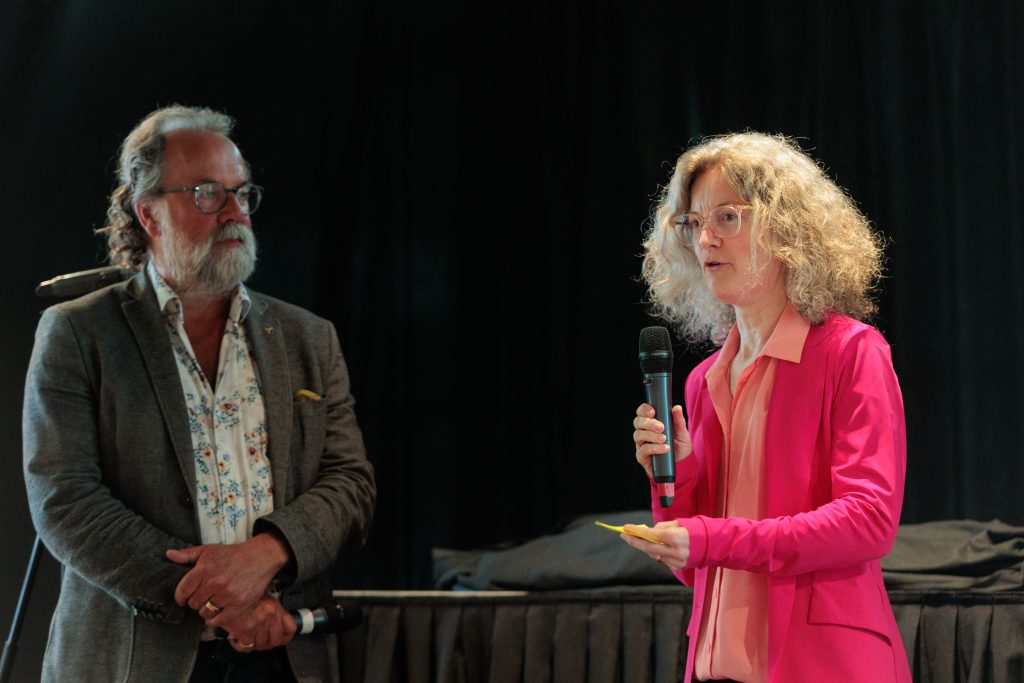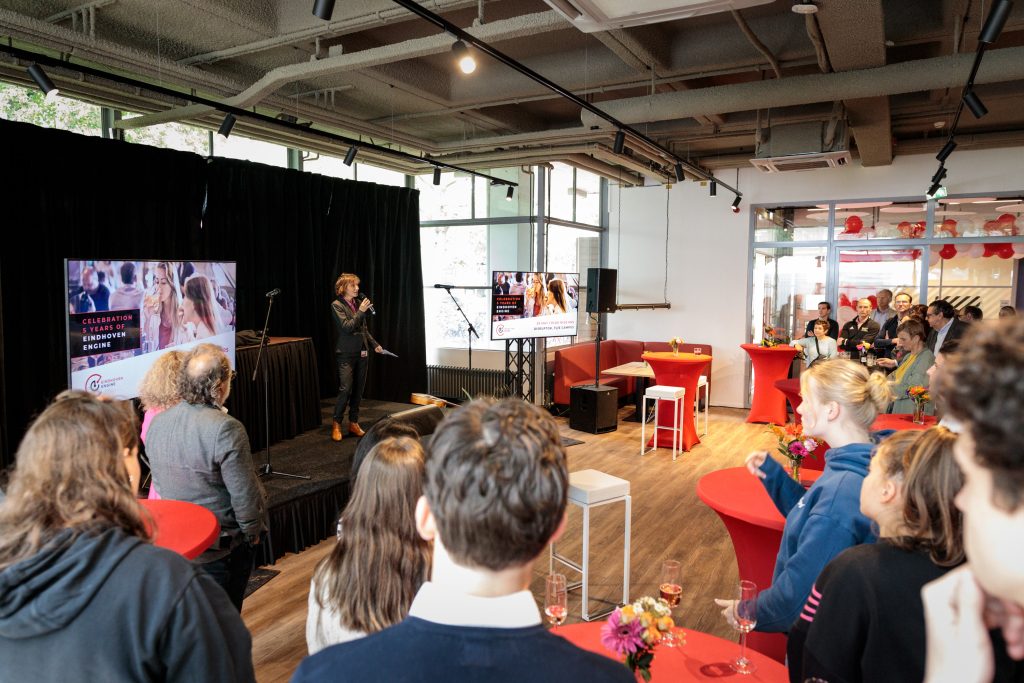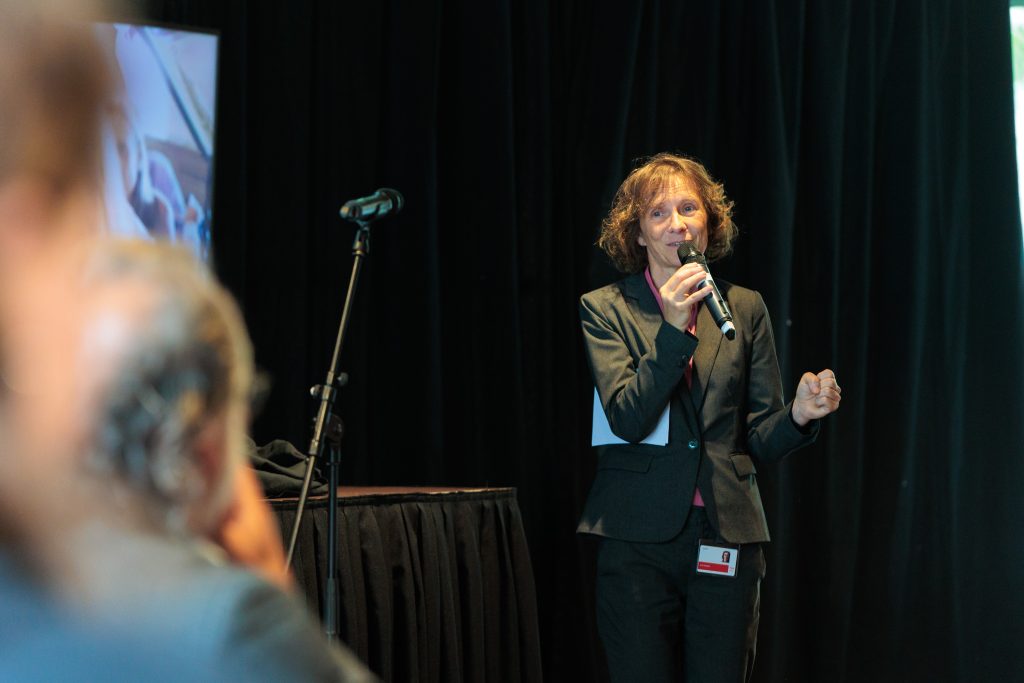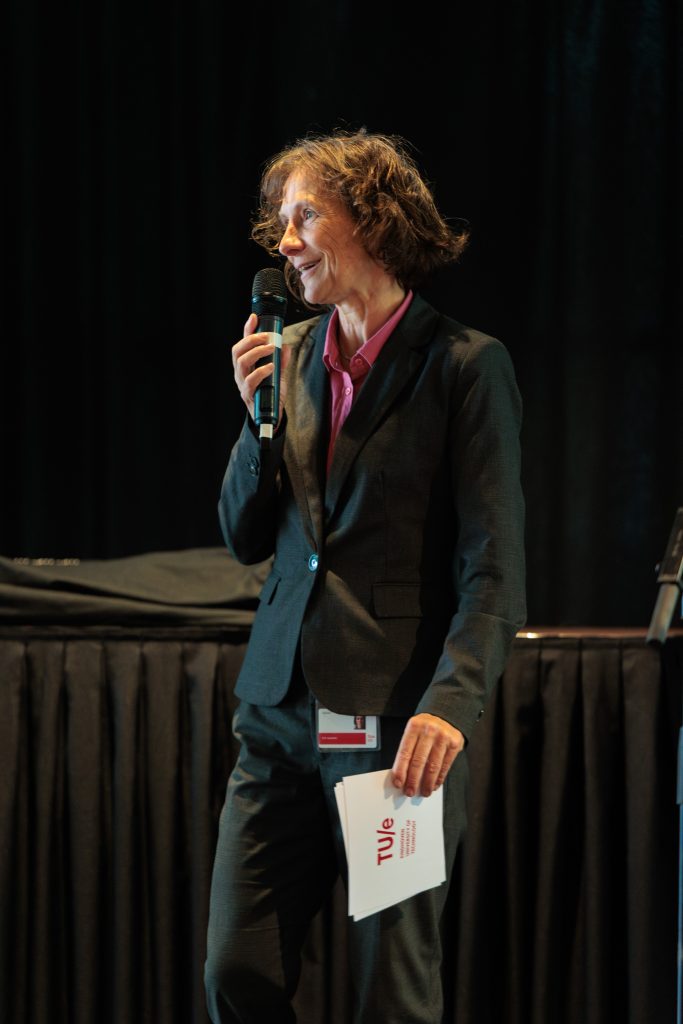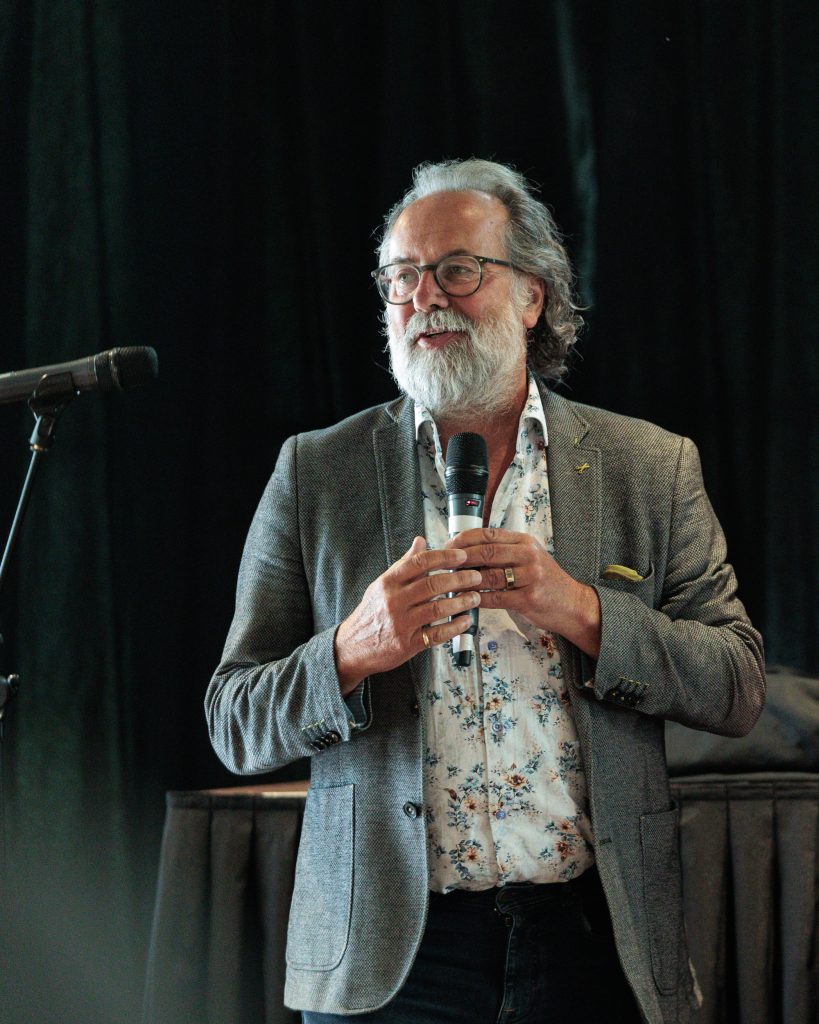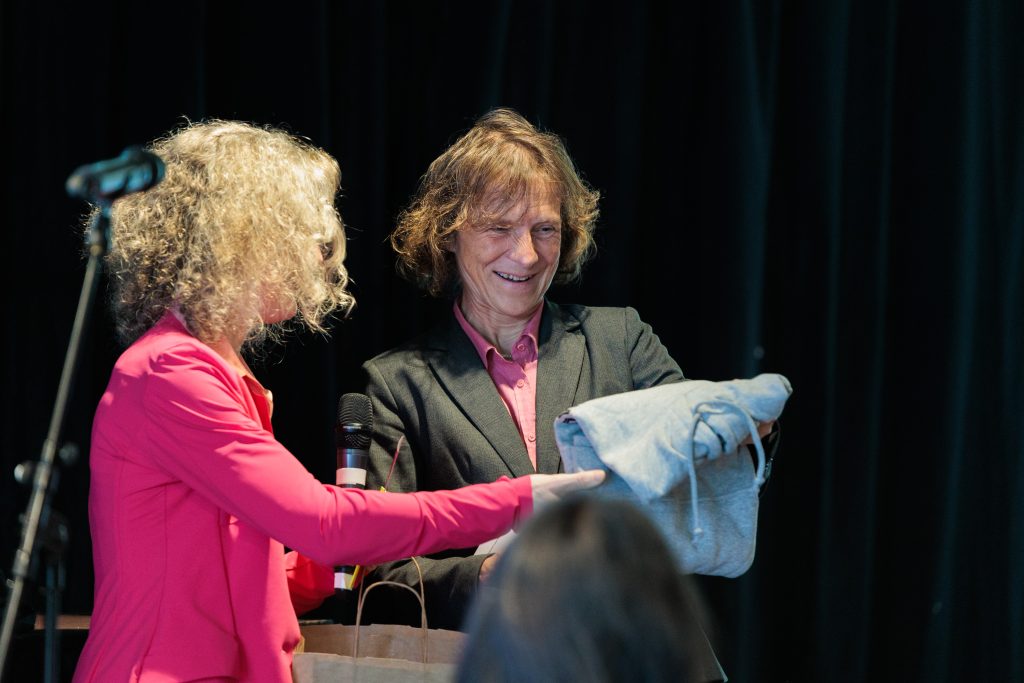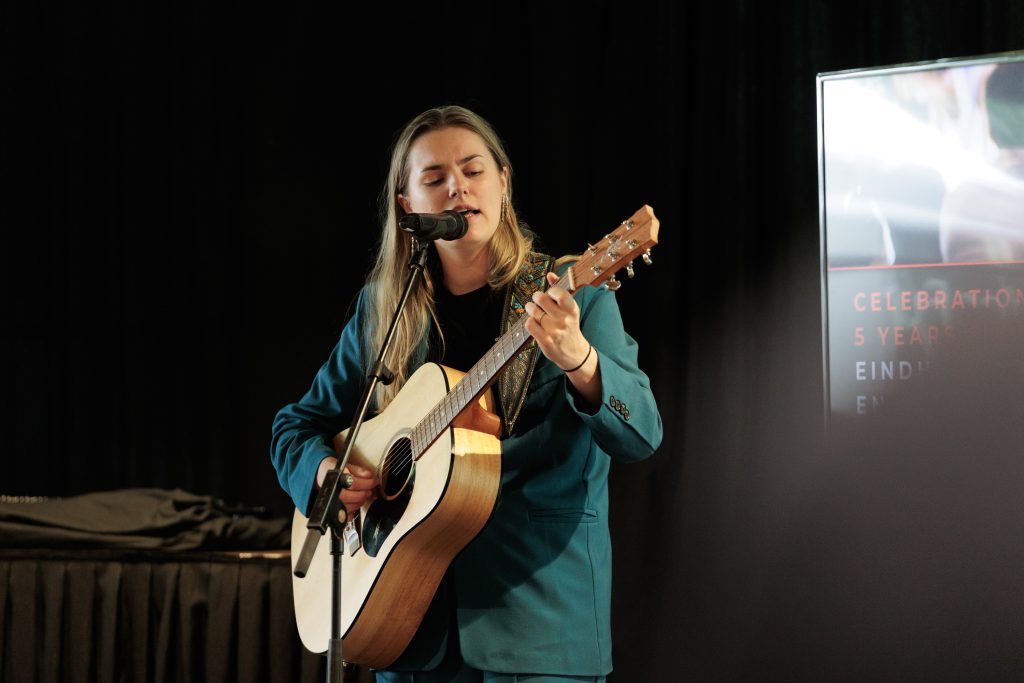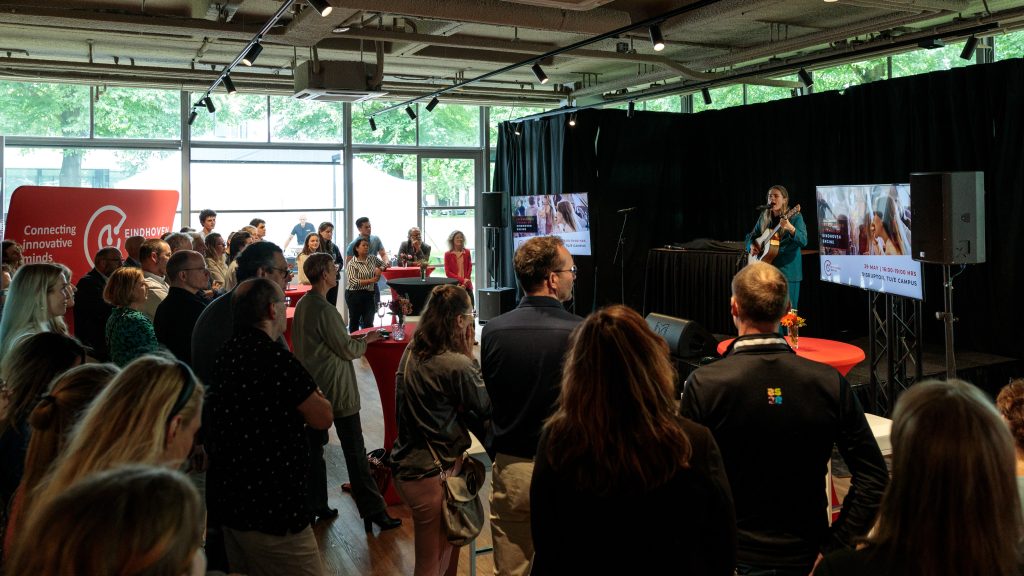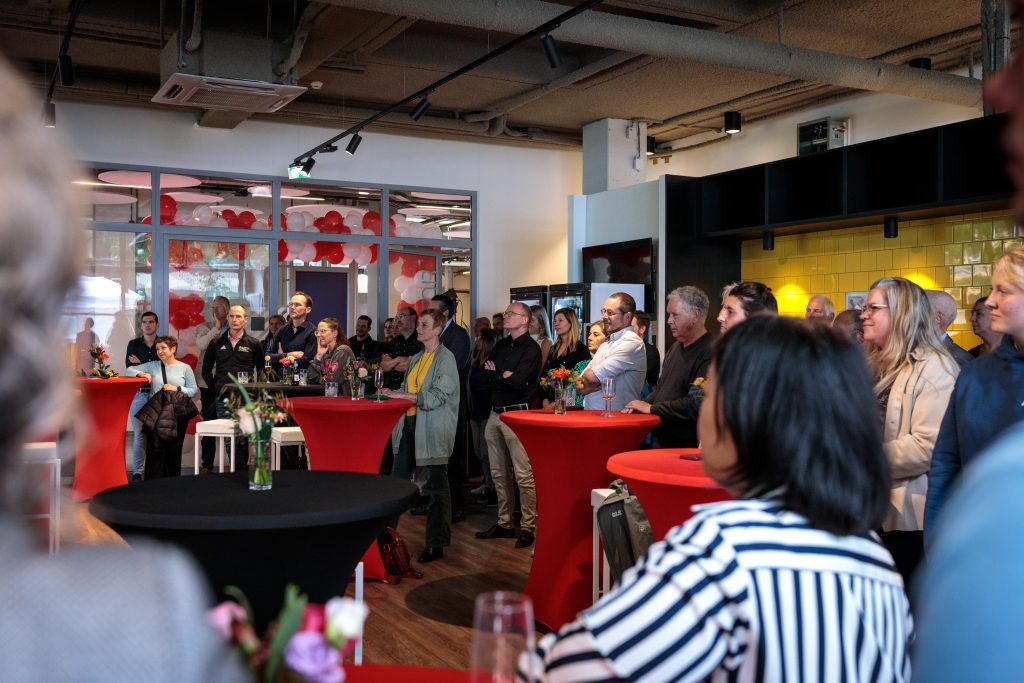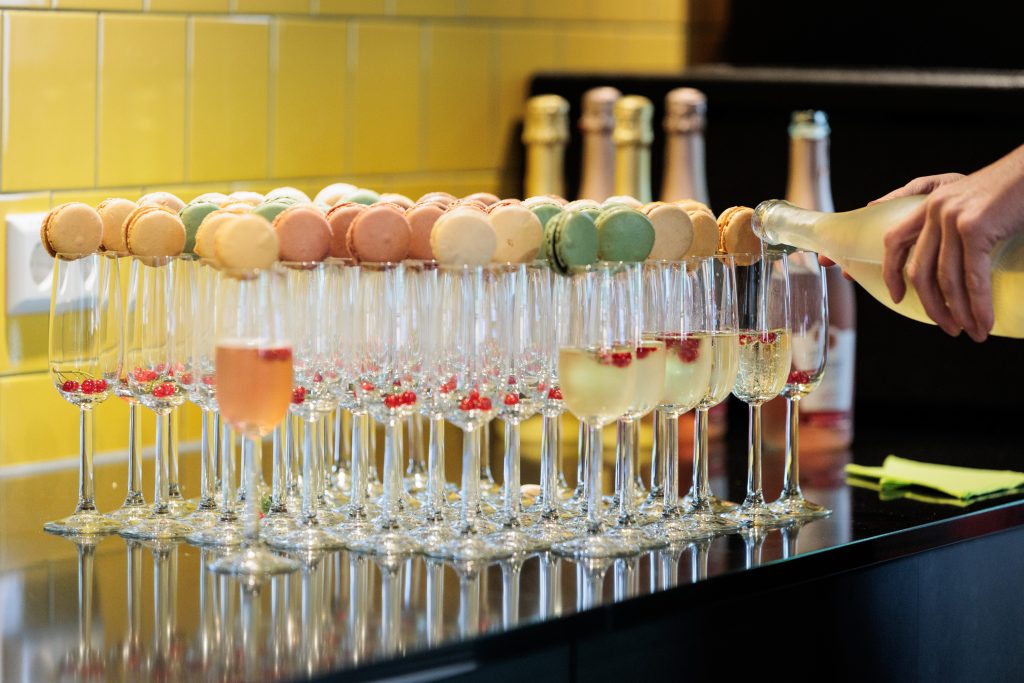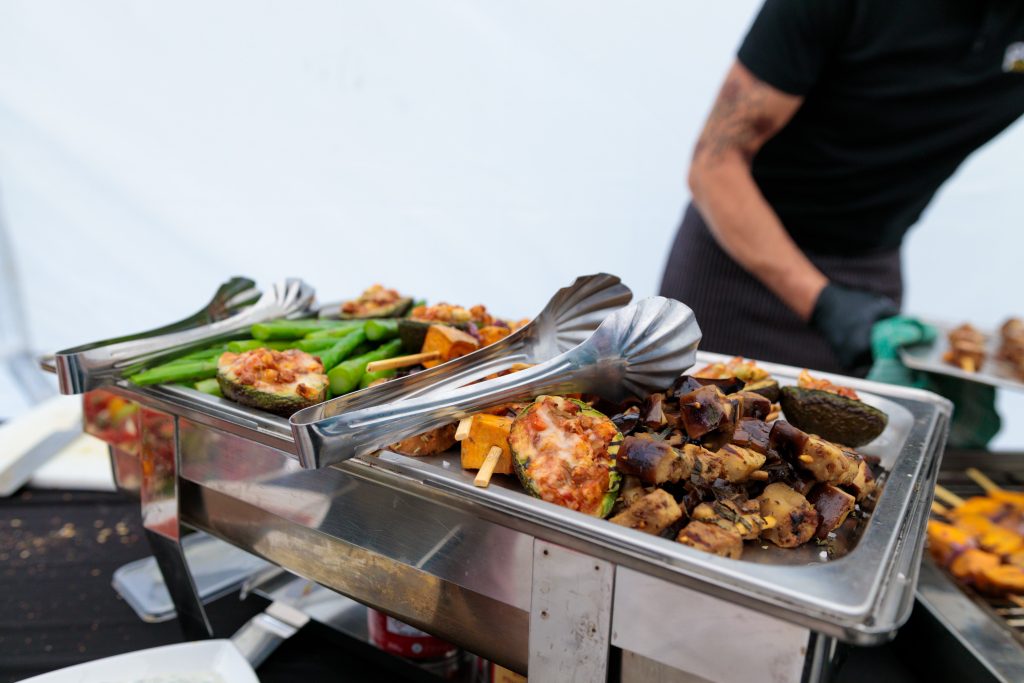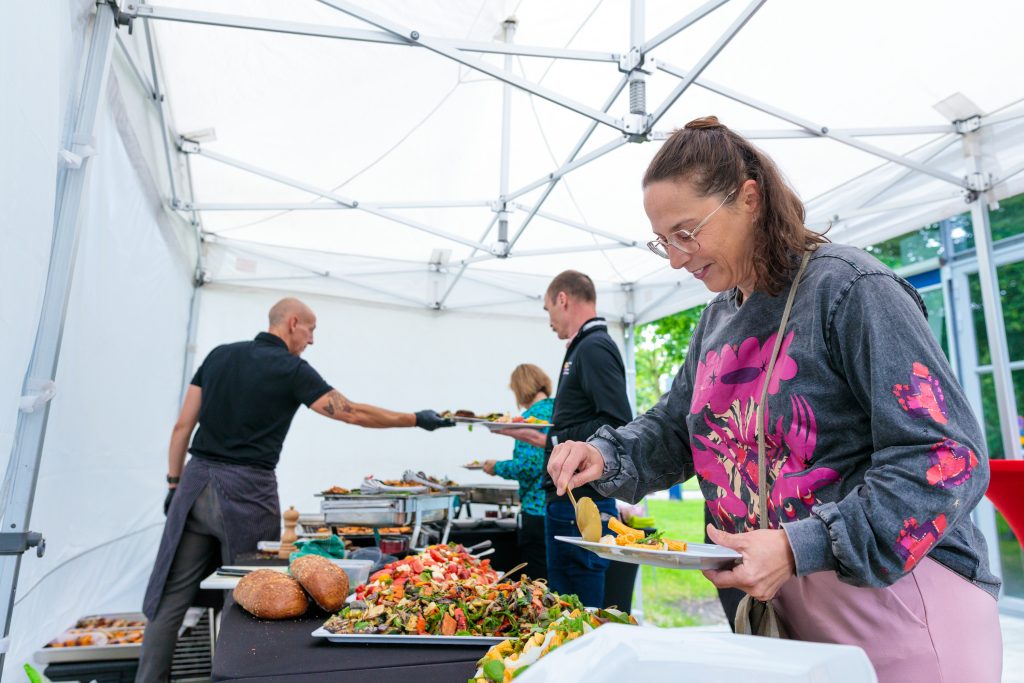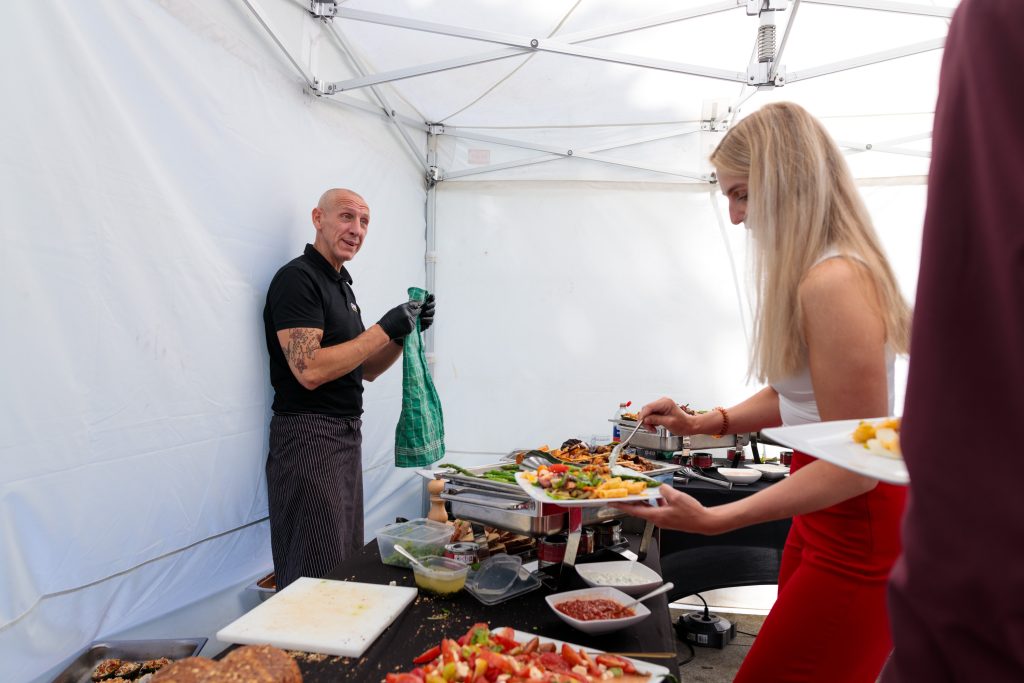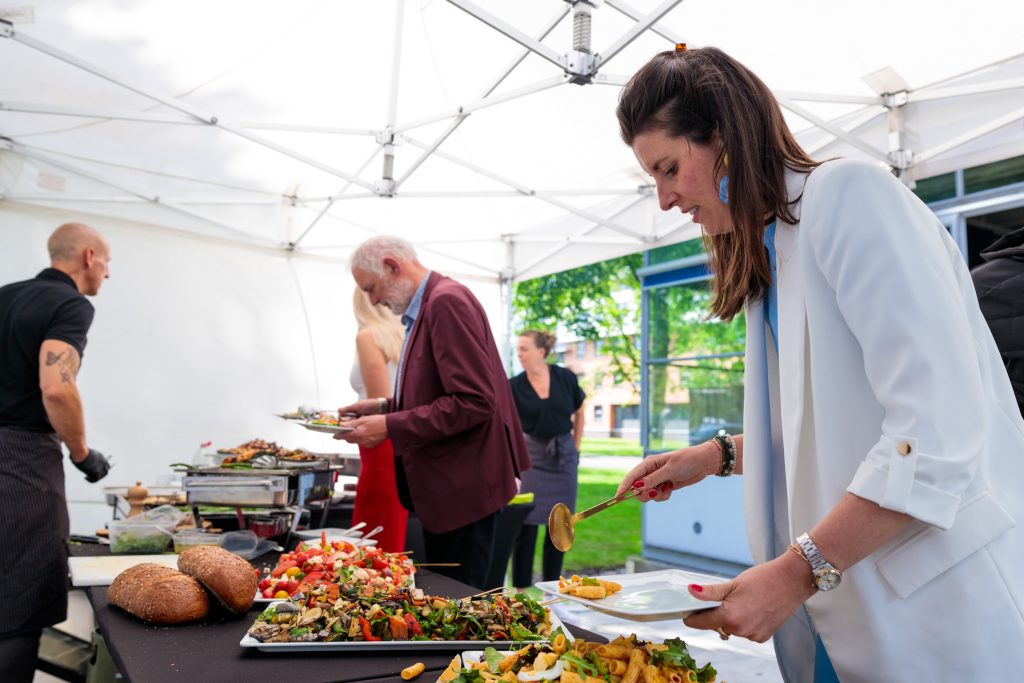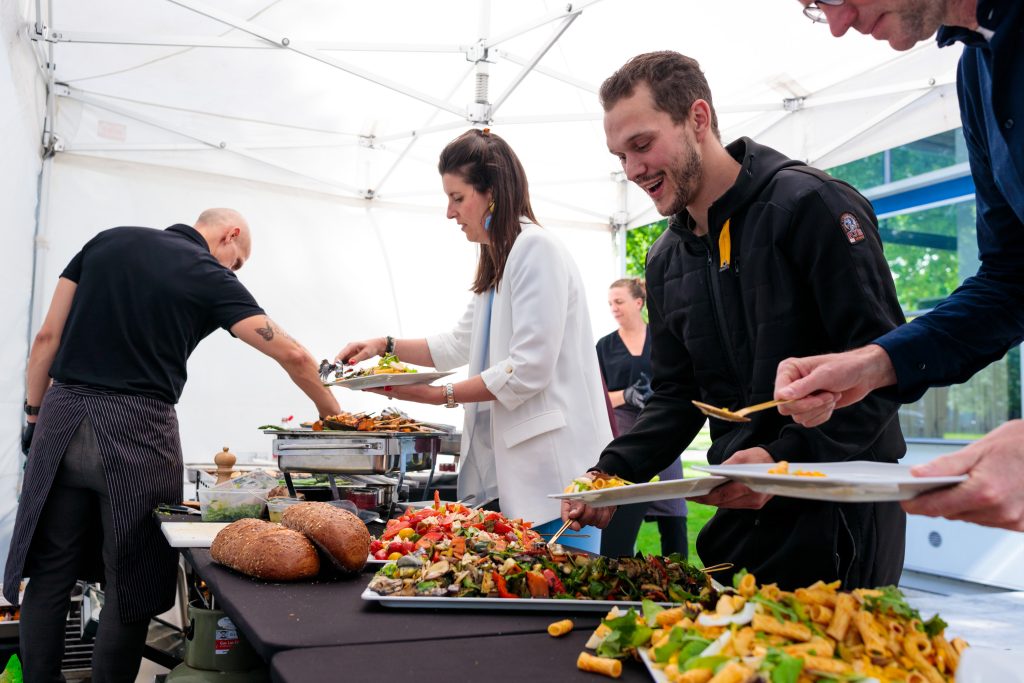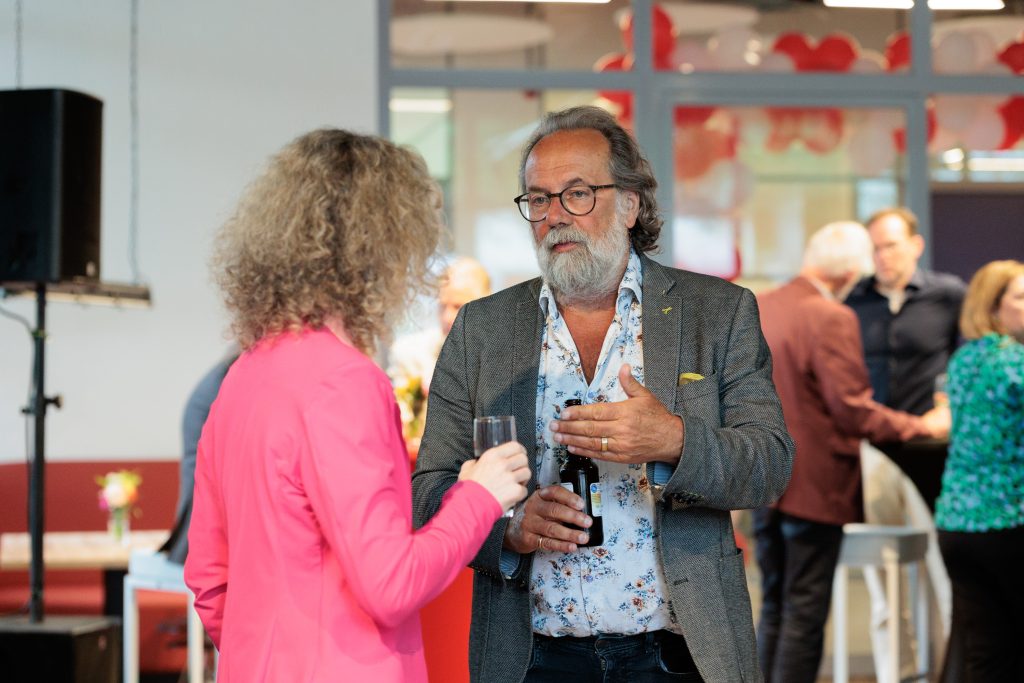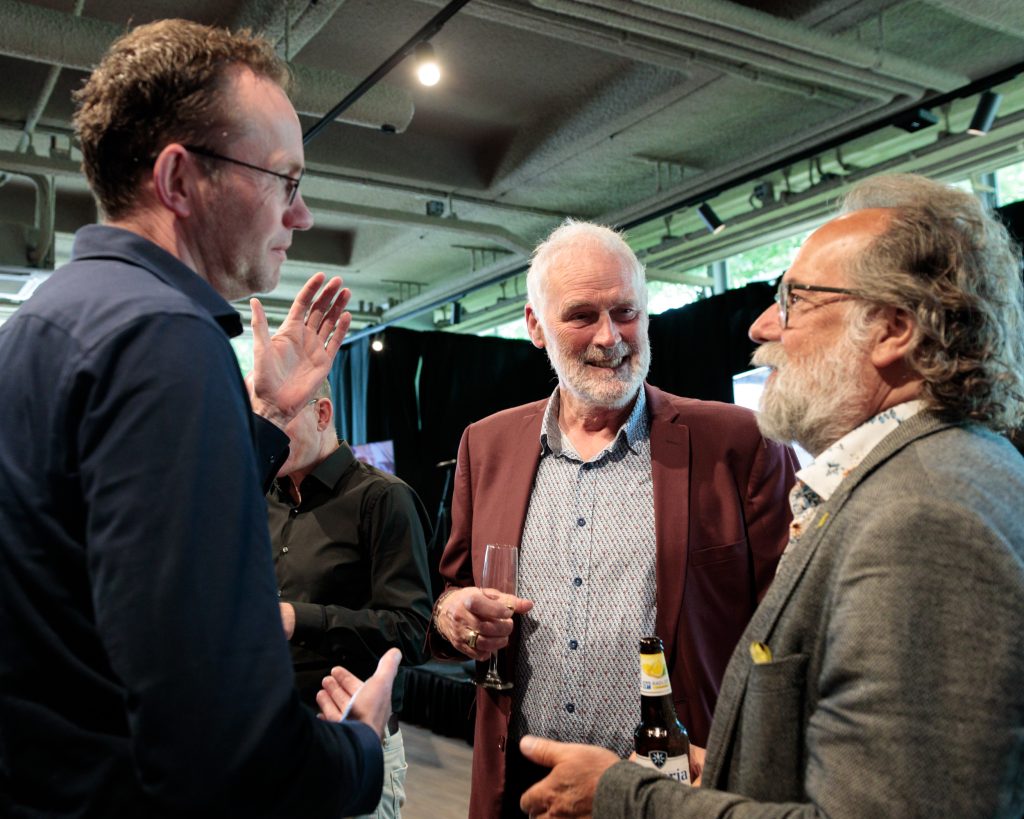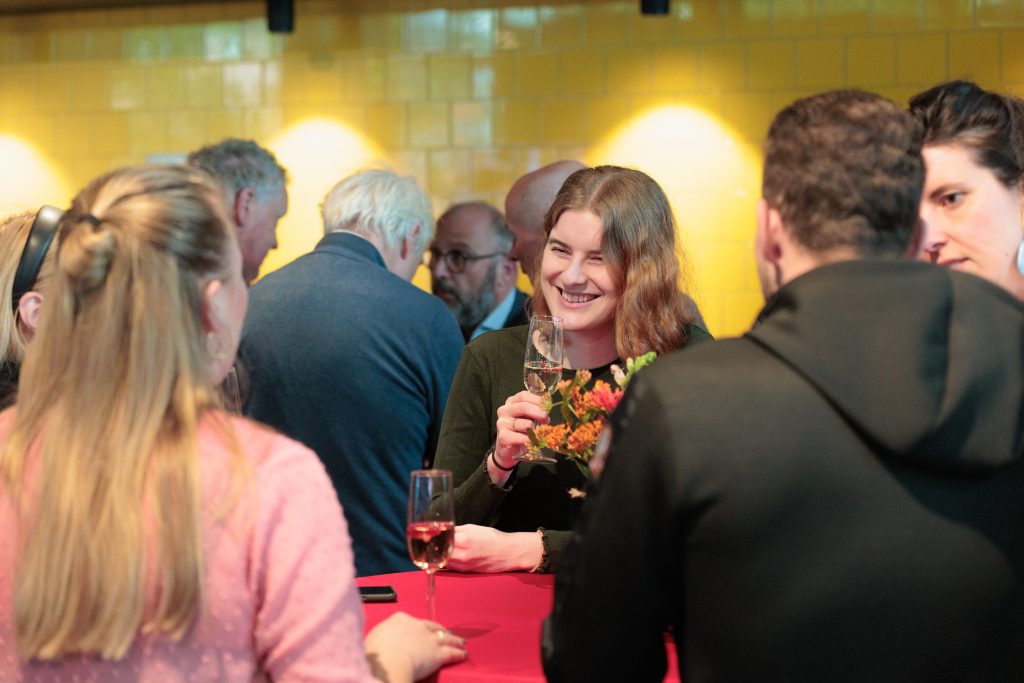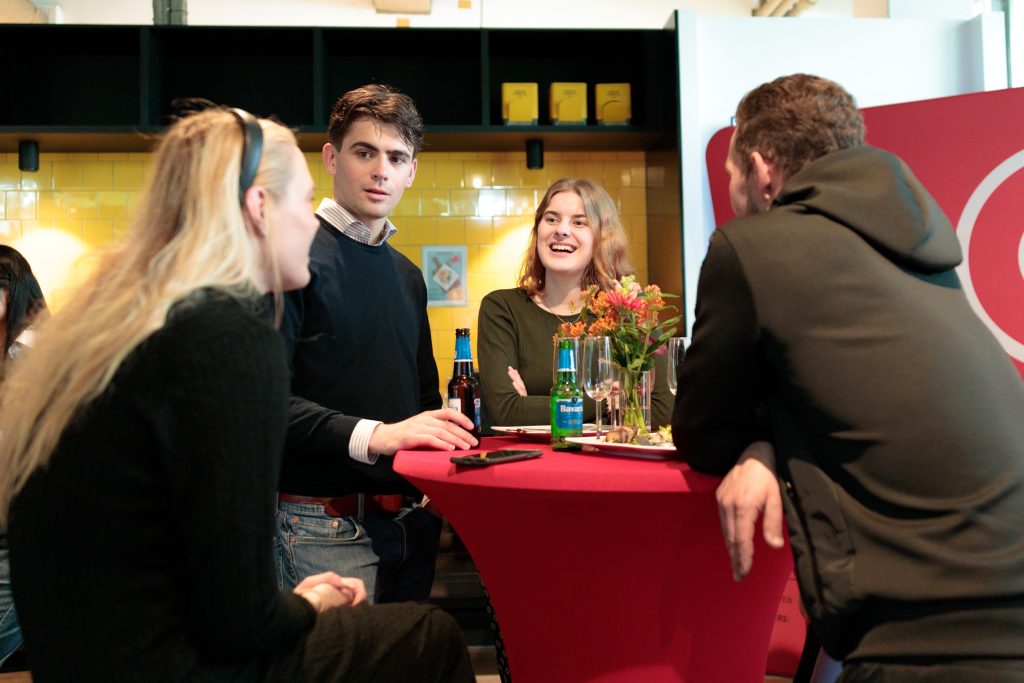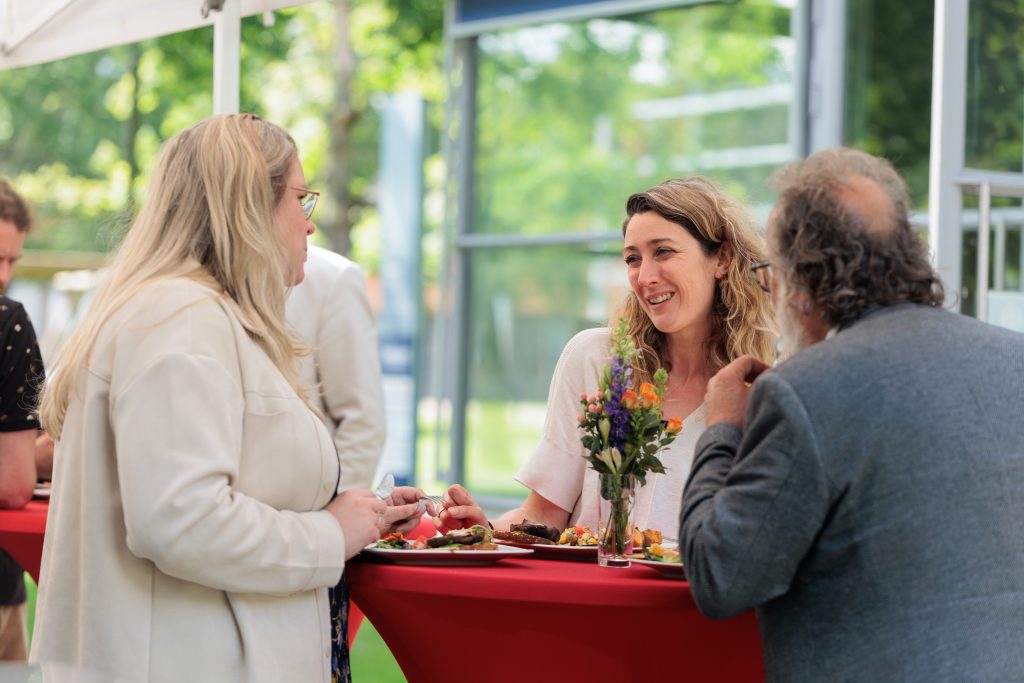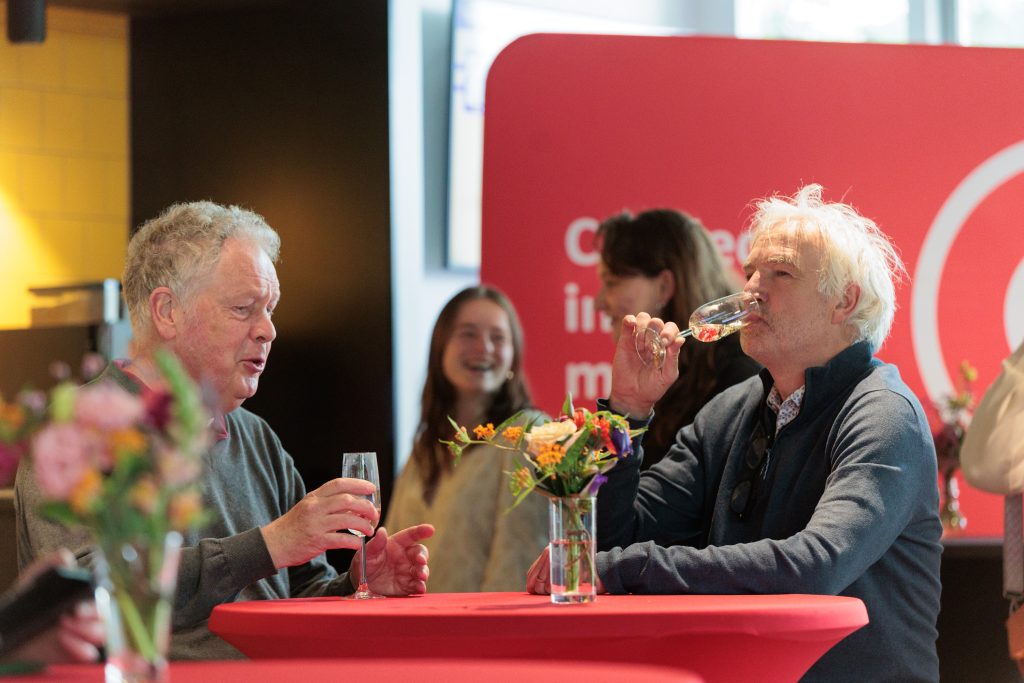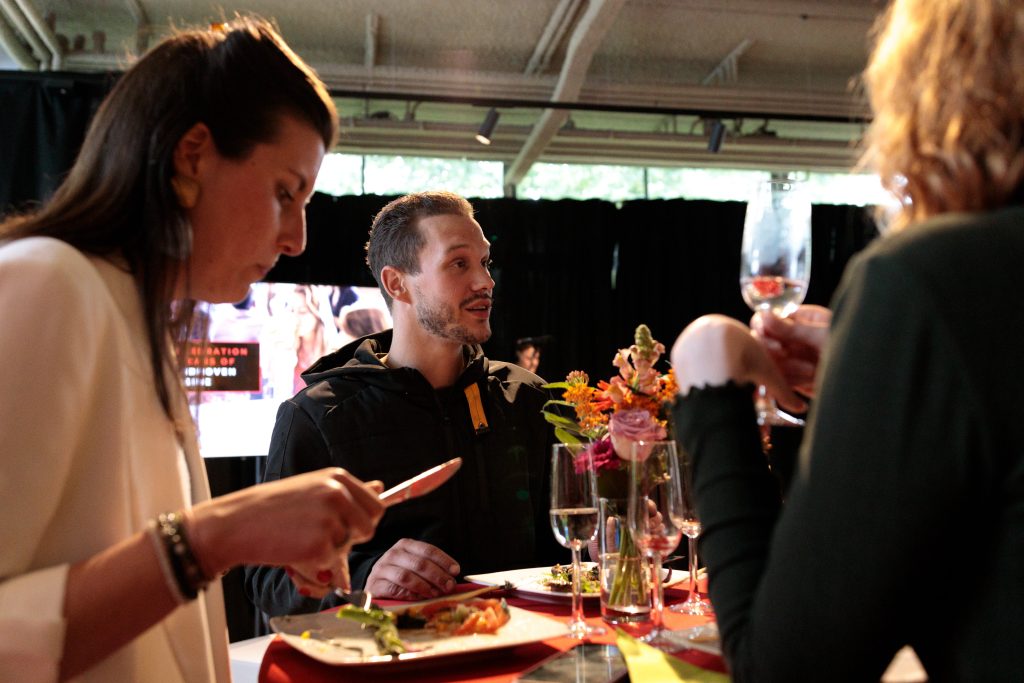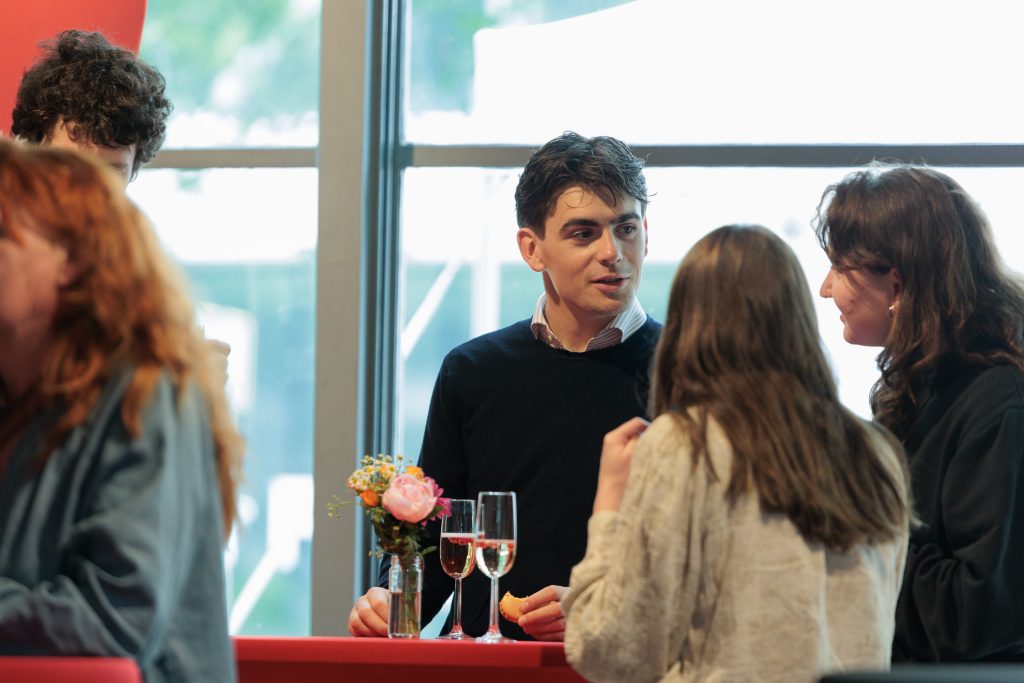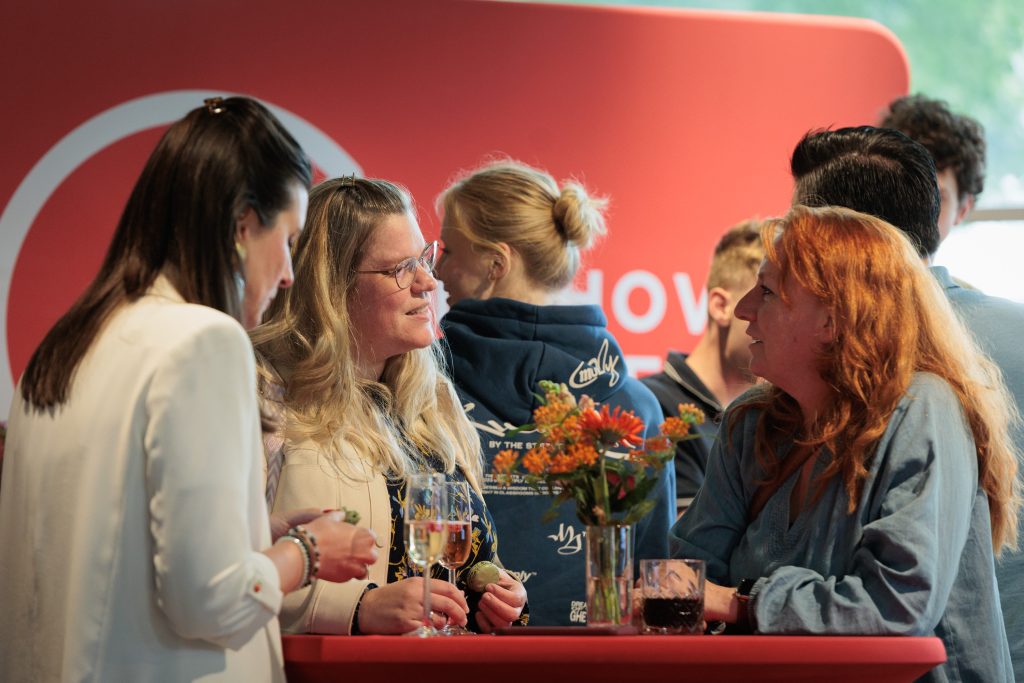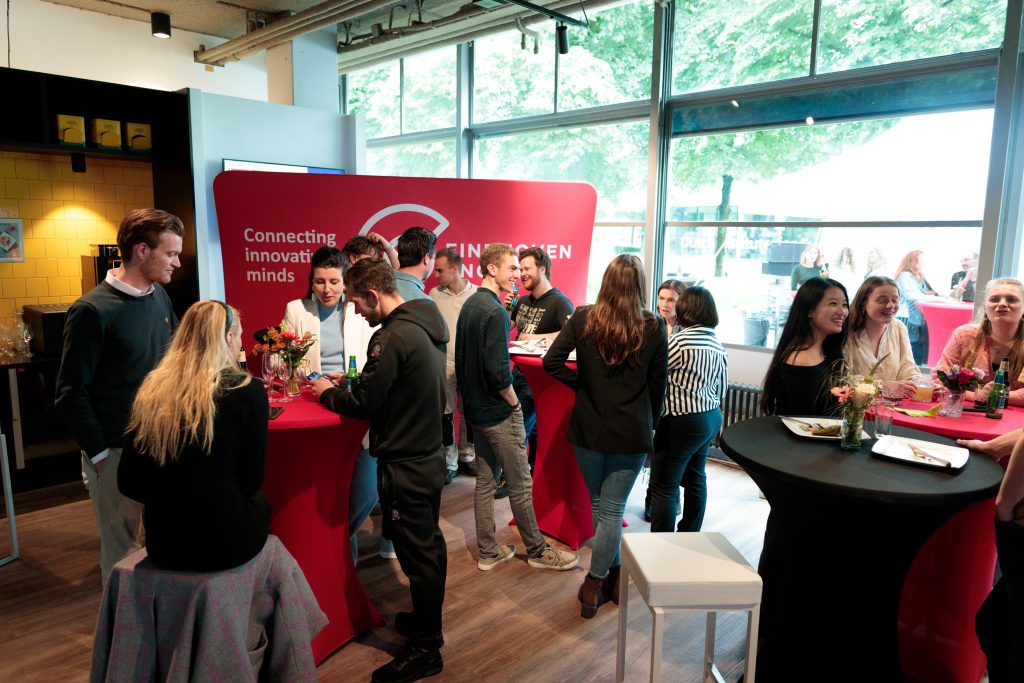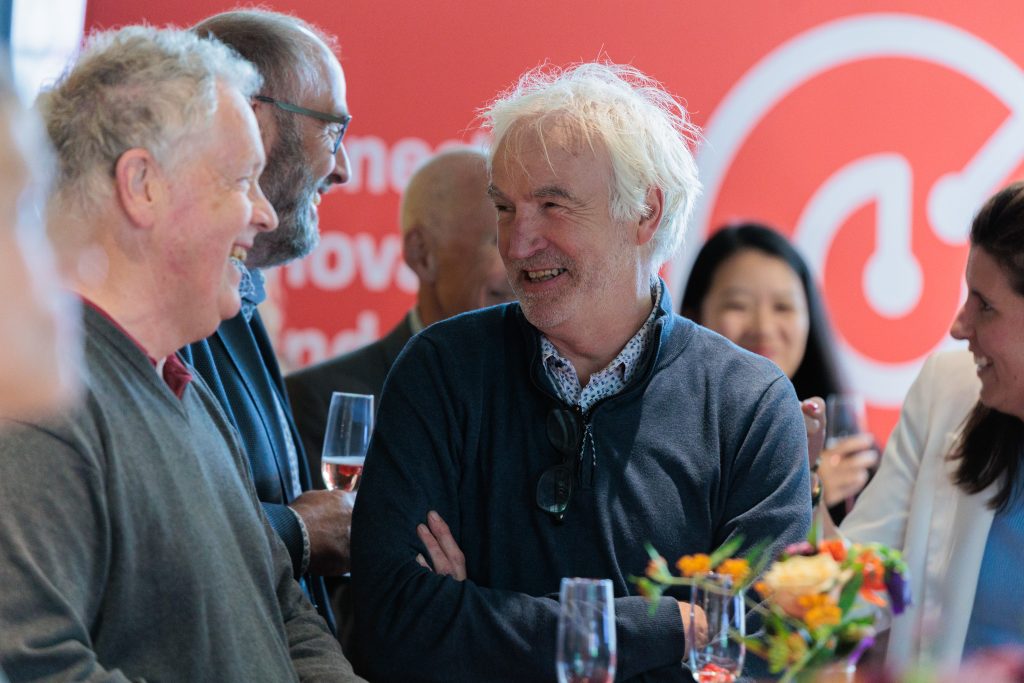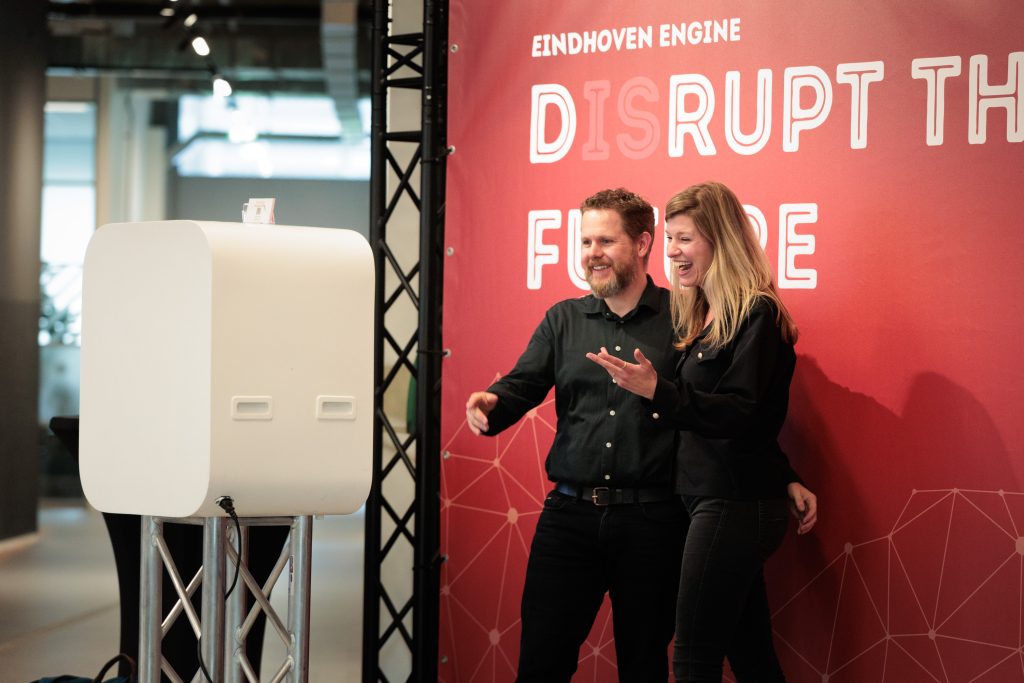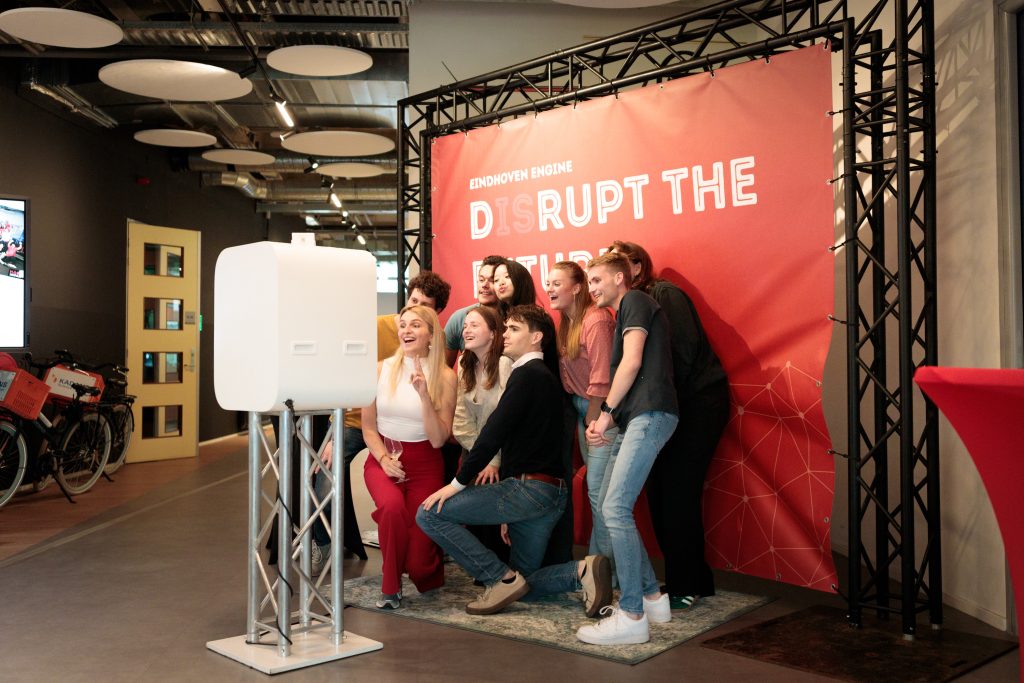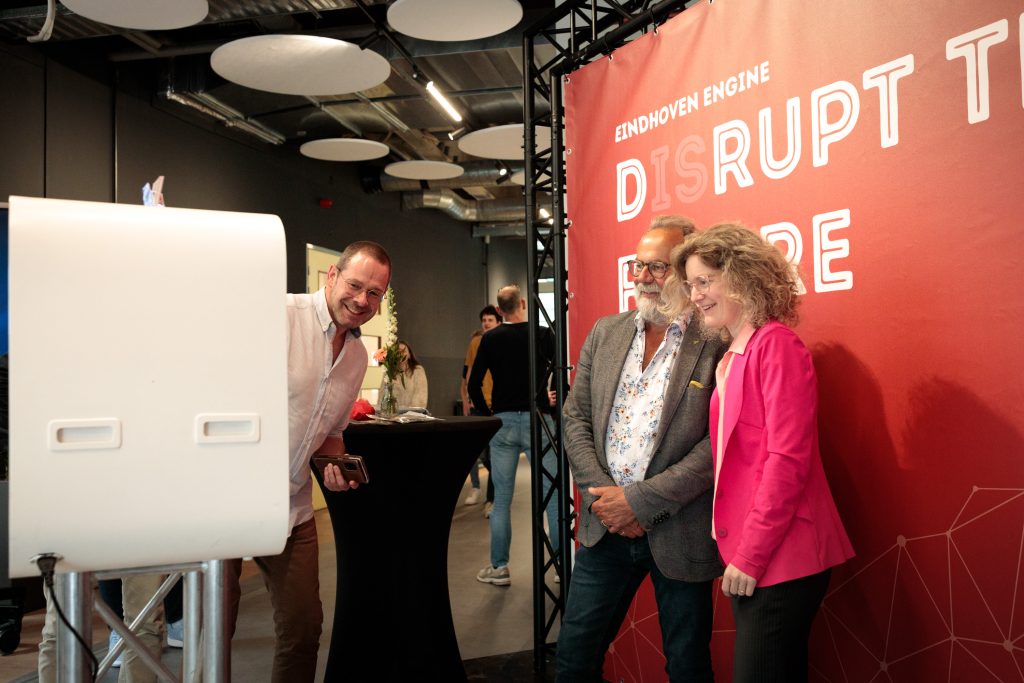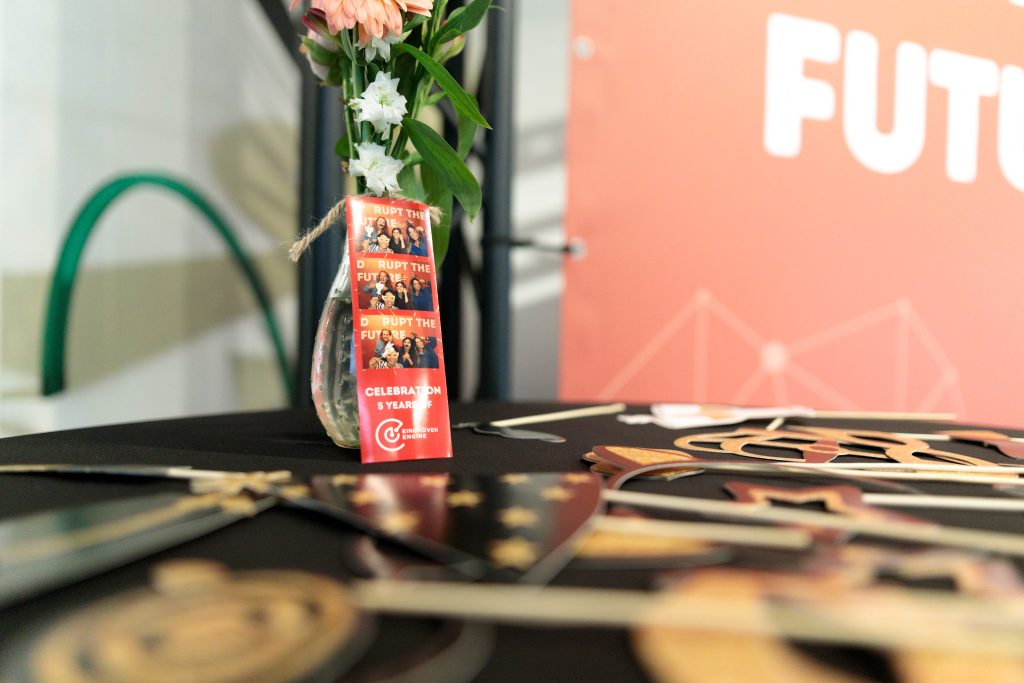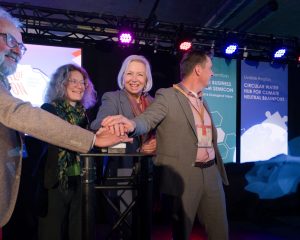Women in Science Week at TU/e | Meet-up event
Highlights
- Opening session: by Silvia Lenaerts – Rector Magnificus of TU/e & Ella Hueting – Director of Fontys Engineering
- Keynote: by Tila Pronk – Associate Professor of Social Psychology at Tilburg University
- Marina van Damme Grant Award: Presentation of the prestigious €9,000 grant to a talented female TU/e alumna
- Speed-dating session: A great chance to meet and engage with women from diverse scientific backgrounds
- Moderator: Cindy de Koning – Press Officer at TU/e
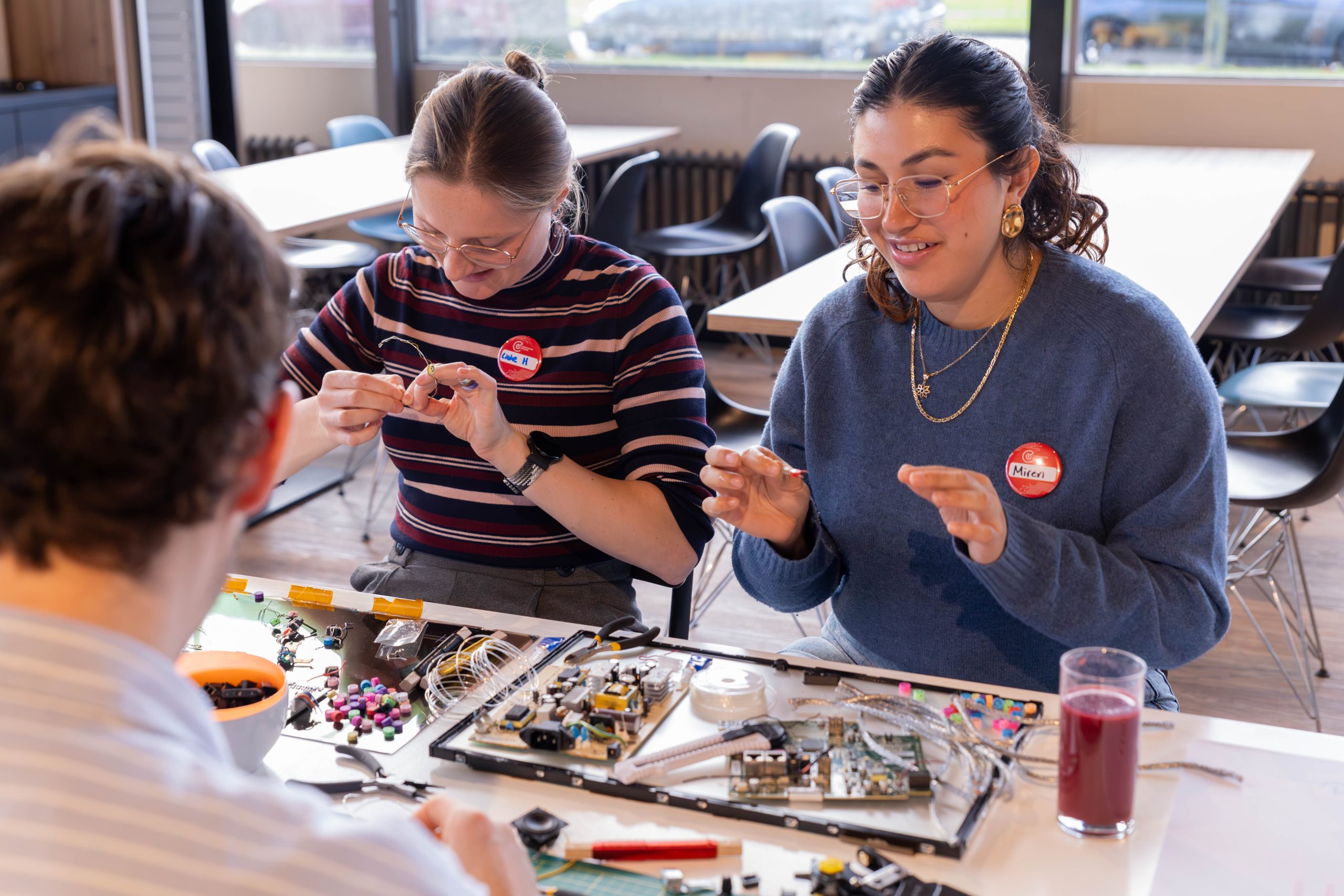
Why join?
- Networking: This event is a fantastic opportunity to meet and connect with over 50 inspiring female scientists.
- Experience Sharing: It is a perfect chance to expand your network, share experiences, and engage with female role models from various fields.
For whom?
- This meet-up event is open to everyone who feels connected to the theme of women in science and diversity, regardless of gender, background, or role.
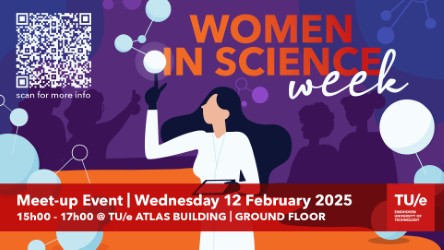
Full program & sign up
- Don’t miss out!
- Check out the full program & Sign up now!
- Women in Science Week | Meet-up event
Organizers
- Eindhoven University of Technology, co-organized by Fontys Engineering and WISE Network
Feel most welcome to join us – don’t forget to sign up!
Media: Innovation accelerator Eindhoven Engine enters new phase
Technology with a clear social purpose an starting with the problem.
As a society, we face numerous challenges. At Eindhoven Engine, a collaborative program between companies, knowledge institutions, social organizations and citizens in the Brainport region, work has been going on for years on innovations to address these problems. Now the program is breaking new ground.
Source: Eindhoven University of Technology
Media: Technologie met een duidelijk maatschappelijk doel:
[Dutch]
Innovatieversneller Eindhoven Engine gaat nieuwe fase in
Als maatschappij staan we voor talloze uitdagingen. Bij Eindhoven Engine, een samenwerkingsprogramma tussen bedrijven, kennisinstellingen, maatschappelijke organisaties en burgers in de Brainportregio, wordt er al jaren gewerkt aan innovaties om deze problemen het hoofd te bieden. Nu slaat het programma een nieuwe weg in.
Source: Innovation Origins
Science, industry and government seek solution to grid congestion via large-scale living lab on TU/e campus
In the search for solutions to the current grid congestion problem, science, industry, and government are joining forces, killing two birds with one stone.
With the OPZuid project GENIUS, TU/e wants to tackle grid congestion together with companies, municipalities, and the province and, at the same time, set up a sustainable testing ground for relevant future innovations. The starting signal is to commission a battery pack in the size of no less than a sea container for the storage of electrical energy on Monday, 18 November.
The GENIUS battery is essential to a smart control platform that aligns different industrial users, energy sources, and storage systems to prevent energy peaks. The lithium iron phosphate battery contains no cobalt or nickel and acts as energy storage and a control tool. It can coordinate and optimize complex data, allowing it to advise on and anticipate the energy needs of the more than forty faculty and business buildings on the TU/e campus, on which approximately fifteen thousand people depend daily. The energy hub is connected to the public energy grid, allowing energy to be fed back into the grid or shared with users in the local area.
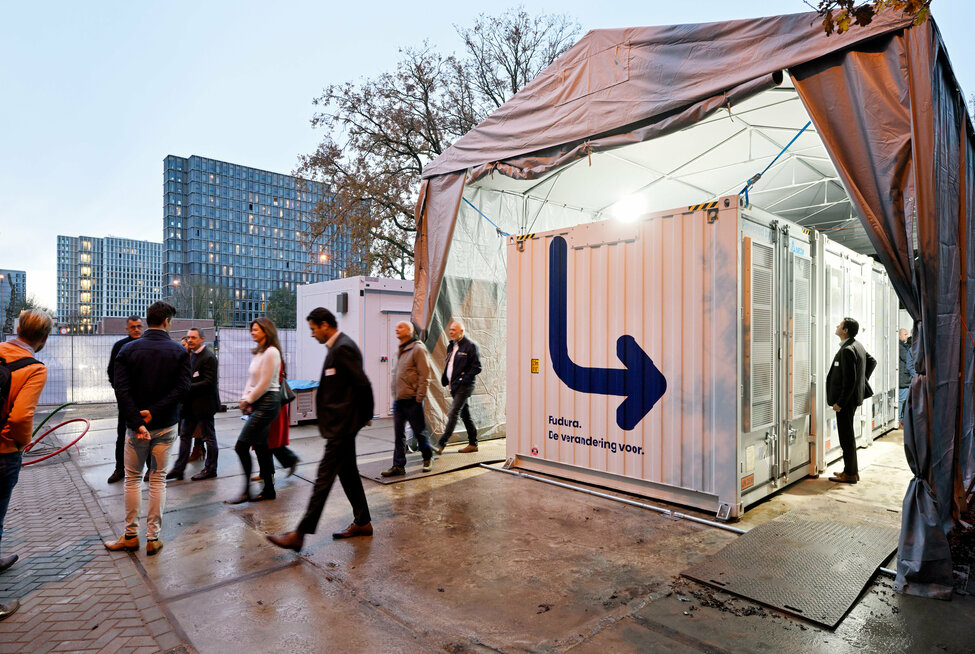
Spreading the rush hour
This battery pack ensures that TU/e no longer causes any exceedances on the contracted capacity and balances the energy consumption better. Simply put, the congestion problem on the energy grid is solved by spreading the morning and evening rush hours. This offers room for further sustainability and expansion of the campus within the current contracted capacity. Think, for example, of heat pumps in combination with Heat and Cold Storage and the arrival of a new clean room.
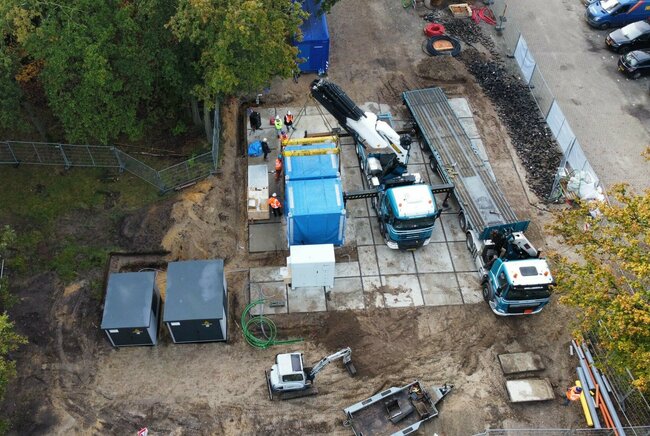
The package easily pays for itself thanks to smart charging and discharging and peak shaving (energy storage when there is little demand and deployment during peak periods). For TU/e, it provides an estimated 20% extra space on its energy grid and capacity because less has to be purchased at unfavorable times (during ‘rush hour’), which lowers the total costs.
This is also beneficial for the grid load in general because TU/e ‘gets out of traffic jams’ at such peak times. More gains can be made in (among other things) the areas of (minimal) CO2 emissions, balancing grid congestion at regional and national levels (TU/e can consume more energy without increasing its connection, leaving capacity for the local area), energy security, peak reduction or the prevention of exceedances on the energy connection.
Blueprint for Dutch industry and grid operators
The system approach not only alleviates the energy needs of the (growing) TU/e campus and distributes them more efficiently but should also ultimately provide a blueprint for Dutch industry and grid operators to tackle grid congestion efficiently. Initially, for the approximately 3500 industrial estates in the Netherlands, mainly in the south of the Netherlands, where grid congestion is slowing down the energy transition and hindering economic growth. That blueprint could then be on the market in four years. This makes OPZuid GENIUS (Grid Efficiency Network Integration for Universal Sustainability) a strategic project with interest from society as a whole, in which open innovation predominates.
In fact, the project functions as a micro-society on campus, providing valuable knowledge about user behavior and how it is influenced and changed by insight into energy use patterns in the long term. This behavioral knowledge is crucial to developing strategies that drive effective behavioral change and promote energy efficiency.
Consortium around OPZuid GENIUS
TU/e President of the Executive Board Robert-Jan Smits: “I am tremendously proud of this project because it brings together a lot of what we stand for as TU/e. With this we are working on sustainability, on solving the grid congestion that all of the entrepreneurial Netherlands is facing, and we are doing this – as a true 4th generation university – in collaboration with a wide range of partners in the region, focused on social impact.”
Mark Cox, Senior Program Manager Energy TU/e: “The GENIUS battery, in combination with intelligent software, can store energy when demand is low so that we can use it during peak times. Thanks to AI, other users, both on campus and in the local area, will not notice this. On the contrary, everyone can benefit from it. When the new Energy Act comes into effect next year, adjacent power grids can be connected. The cleverness of our system approach should then ensure that everyone is always supplied with energy without crossing borders.”
When the new Energy Act comes into effect next year, adjacent power grids can be connected. The cleverness of our system approach should then ensure that everyone is always supplied with energy without crossing borders.
Tom Selten, founder of Simpl.Energy: “With our software, we control the battery, charging stations, and solar panels so that TU/e always remains within the connection. In addition, we optimize the purchase of electricity, thereby minimizing energy costs. And as icing on the cake, with our platform, TU/e has one place where they can see whether all systems are working properly and how much is being earned and saved.”
Daan Pelders, business developer Fudura: “At Fudura, we are proud to be able to participate in this innovative process. We are supplying one of the largest batteries in the Brainport area and integrating it into TU/e’s private grid. We have been TU/e’s partner in energy infrastructure and metering services for many years, and we are grateful for the trust we have received to carry out this project.”
The consortium around OPZuid GENIUS consists of the following parties: TU/e department Real Estate, EIRES, EAISI, Fudura, RIFT, Simpl.Energy, Voltgoed, VBOptimum, ZEnMo, Cube Charging, Enerzien, Eindhoven Engine and Woonbedrijf. An active and connected support group includes the province and municipality, as well as the regional grid operator Enexis. This project was co-financed by the European Union through the award of an OPZuid grant.


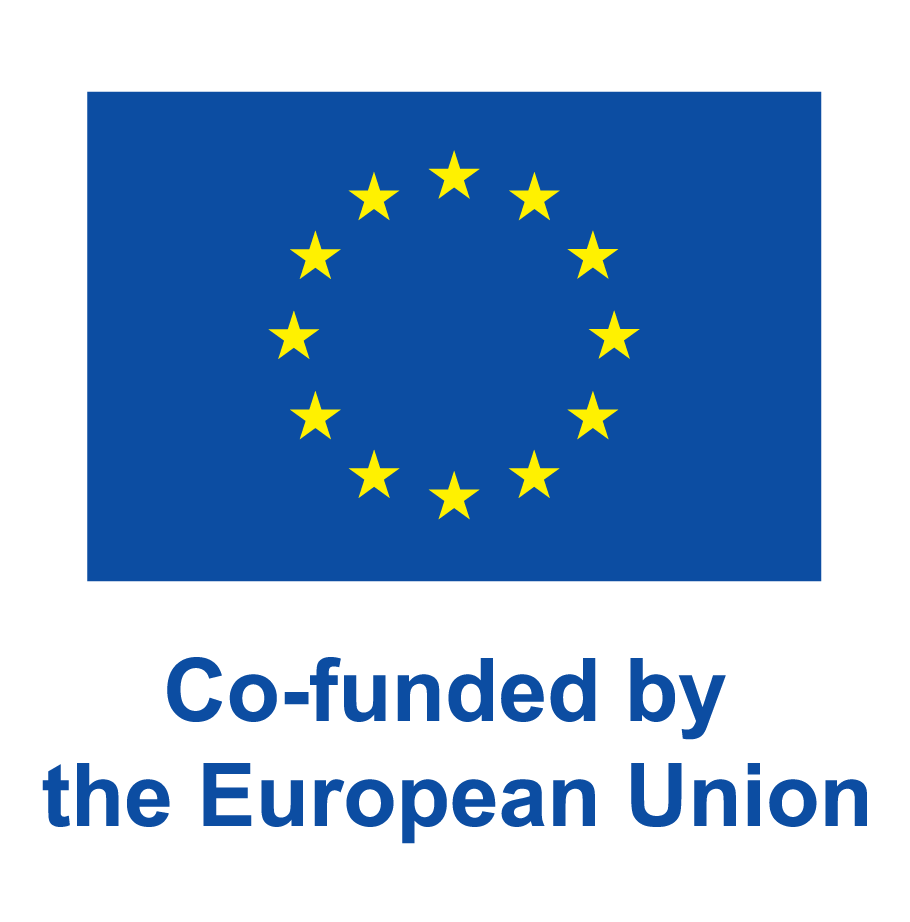
Get ready to be inspired – join us at the Festival of Disruption!
We are excited to share that we are entering a new phase—an era where we initially focused on identifying technological innovations to solve societal challenges. Now, we are diving deep into the complex challenges our society faces. Bring your expertise and collaborate with us to turn multifaceted, complex, and ever-changing ‘wicked problems’ into sustainable, impactful solutions.
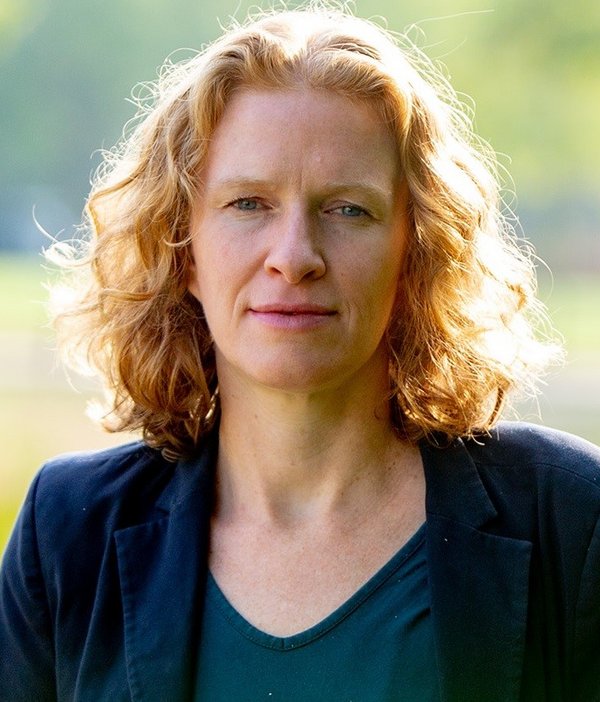
Keynote
The balance between the technical and social dimensions of energy transition
Heleen de Coninck, professor of Socio-Technical Innovation and Climate Change at Eindhoven University of Technology
As a leading climate expert, Heleen will demonstrate how technological innovation must go hand in hand with an understanding of societal dynamics to create real progress in the shift toward sustainable energy systems.
Disrupt your Mind workshops
Get ready for disruptive, thought-provoking workshops that will empower you to tackle wicked problems head-on. We are excited to announce our first workshops:
System thinking x design thinking
Chiara Treglia (Tini studio)
An interactive workshop on the integration of System and Design Thinking methodologies, designed to help you learn and work towards creating sustainable solutions with significant impact.
Wicked problems & the role of academia: the 4th generation university
Maarten Steinbuch, Marcel Bogers & Miko Balthaus (TU/e)
How can the university contribute to solving the complex problems of modern-day society? Is its current form up to the task? Do we need to look at new forms of academia? Come find out at this interactive workshop on innovation models, the knowledge society, and the 4th generation university!
Embracing Complexity in Transitions
Amber Geurts & Marlien Sneller (TNO Vector)
In an era of multifaceted societal challenges, the quest for disruptive solutions is more critical than ever. However, the dispersed efforts are not able to create the right environment for complex changes. For this to change, we need to embrace complexity in transitions and develop our collective capacity to act for innovative sustainable solutions to develop and become dominant. This workshop invites you to explore the intricate web of solutions and stakeholders, and their interconnections, in crafting effective transition pathways that disrupt conventional markets. Join us in recognizing the complexity of this challenge to drive meaningful change.
Intro to CSRD: Building Sustainability Impact
Sahar N. Soudani & U.J. Chiang (Impact X)
Gain insight into a basic introduction to the Corporate Sustainability Reporting Directive (CSRD) and its importance in driving sustainability impact.
Managing sustainability performance of companies in the context of circular and sustainable transitions
Yvonne van Lith (Fontys)
In this workshop, we will outline the ecosystem for circularity in Brabant from the viewpoint of Fontys as an educational institute engaged in applied research. We invite you to share your insights into the main questions around three central topics: collaboration in the value chain, regulations and directives that help or hinder circularity, and awareness and engagement in society.
‘Aahh ik snap het niet!!’
Bridge builders team (Eindhoven Engine)
Experience the complexity of having a lack in basic skills in our society and take action together with us! Discover your perspective and help build an inclusive society.
Livable region: What’s on our mind?
Walter Baets (Eindhoven Engine)
In this experience-based workshop, we co-create with you a common understanding of a livable region. We aim to challenge current visions of the livable region in order to co-create a more systemic understanding.
Join the circular café – Co-creating a circular society
Institute 4 a Circular Society (EWUU Alliance)
The need to move from a “take, make, waste” approach to a sustainable, circular society has never been more urgent. Our current habits of production and consumption are draining resources, driving climate change, polluting the environment, and threatening biodiversity. We believe the solution lies in transdisciplinary research—bringing together researchers, stakeholders, and society to tackle these complex issues collaboratively.
In this relaxed Café-style workshop, you’ll work in small, transdisciplinary groups to explore key circular dilemmas in water, food, and land use. Over several rounds of discussion, you’ll co-create ideas, insights, and solutions. In this interactive format, your unique ideas count, whether they come from your personal experiences or professional work. We want to show you how collaboration with others from diverse fields can spark new, innovative ideas!
You’ll also learn how the institute for a Circular Society, part of the EWUU alliance, can support your circularity journey. We’ll introduce our programs and resources like seed funding, research support, and “pressure cooker” sessions—all designed to help turn your ideas into action.
Envisioning Futures with Dementia: Exploring Aesthetics and Ethics of Personalized Agents
Adhi Raja & Rucha Khot (TU/e)
As technology like chatbots and social robots becomes more personalized and woven into daily life, their potential to create inclusive, empathetic, and compassionate social experiences for people with dementia grows. We invite designers, engineers, caregivers, ethicists, and anyone interested in learning about these fields to join us in a hands-on, multidisciplinary exploration aimed at shaping empathetic, dementia-friendly technologies using roleplay and generative AI techniques. Adhi Raja
Program
| 11:30 – 12:30 | Walk-in – Sandwiches & drinks |
| 12:30 – 12:50 | Welcome – Maarten Steinbuch & Janne Brok, Directors Eindhoven Engine Wicked problems demand impactful solutions – Walter Baets, Wicked Problems officer Eindhoven Engine |
| 12:50 – 13:30 | Keynote: The balance between the technical and social dimensions of energy transition Heleen de Koninck, professor of Socio-Technical Innovation and Climate Change at TU/e |
| 13:30 – 14:00 | Break |
| 14:00 – 14:45 | Disrupt your Mind workshops round 1 |
| 14:45 – 15:15 | Break |
| 15:15 – 16:00 | Disrupt your Mind workshops round 2 |
| 16:00 – 16:45 | Wrap-up theater |
| 16:45 – 17:30 | Network | drinks & bites |
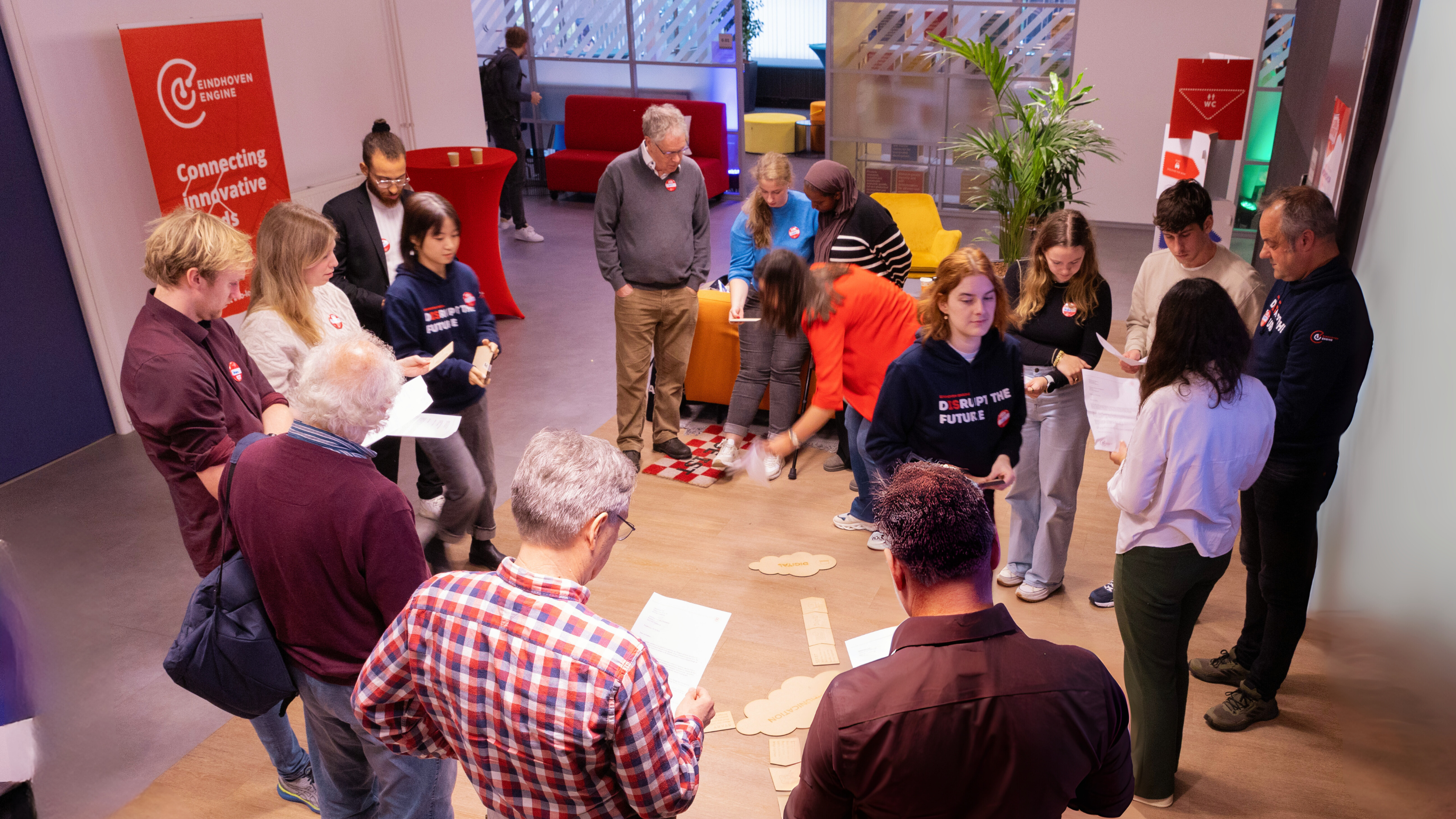
Our focus areas
Currently, Eindhoven Engine focuses on the following four wicked problems:
- Inclusive Society
Bridging the gap for the 2.5 million people in the Netherlands who lack basic skills. - Livable Region
Tackling the energy transition and ensuring access to electricity for everyone. - Future-Proof Care
Rethinking healthcare with an emphasis on prevention and vitality. - Sustainable Semicon
Innovating in circularity and reducing CO2 emissions in industries.
We start by making these problems understandable and then transform them into sustainable, impactful solutions. We always use technology with a purpose, and our solutions are co-created with those experiencing the problems.
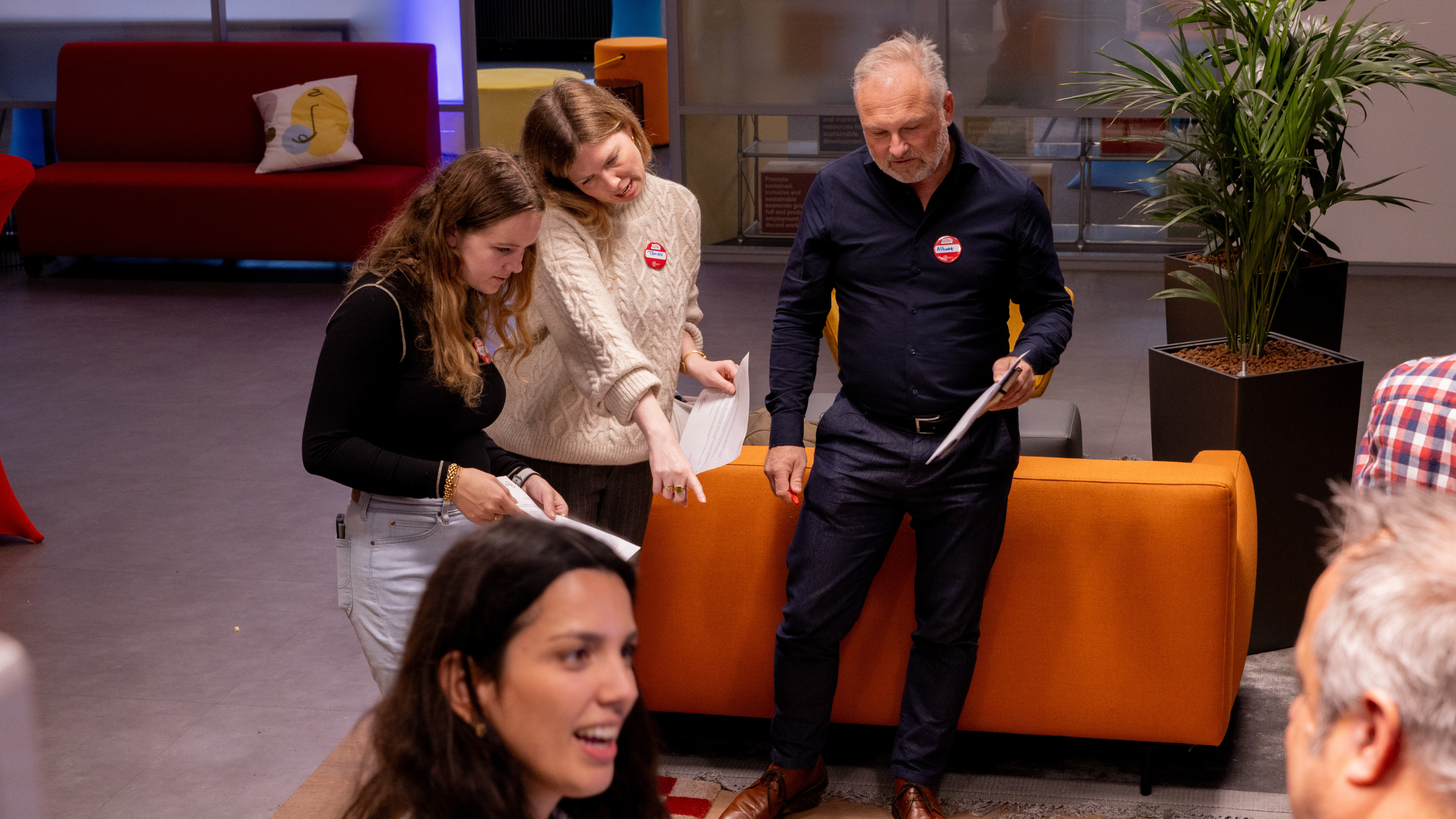
What you will gain
- First hand learning from the experience of Eindhoven Engine
- Learn how we co-create solutions with the very people who live these problems, using tech as a tool for meaningful change.
- Enhance your awareness around impact, meaning and the positive role that tech can play
- Develop your agile innovation skills and business model innovation
- Become comfortable in the complexity of our current world, in order to develop your capacity to solve wicked problems
Get ready to be inspired. Get ready to disrupt. Sign up now and see you on November 28!
“Wicked problems demand impactful solutions—let’s co-create a future where innovation meets purpose.”
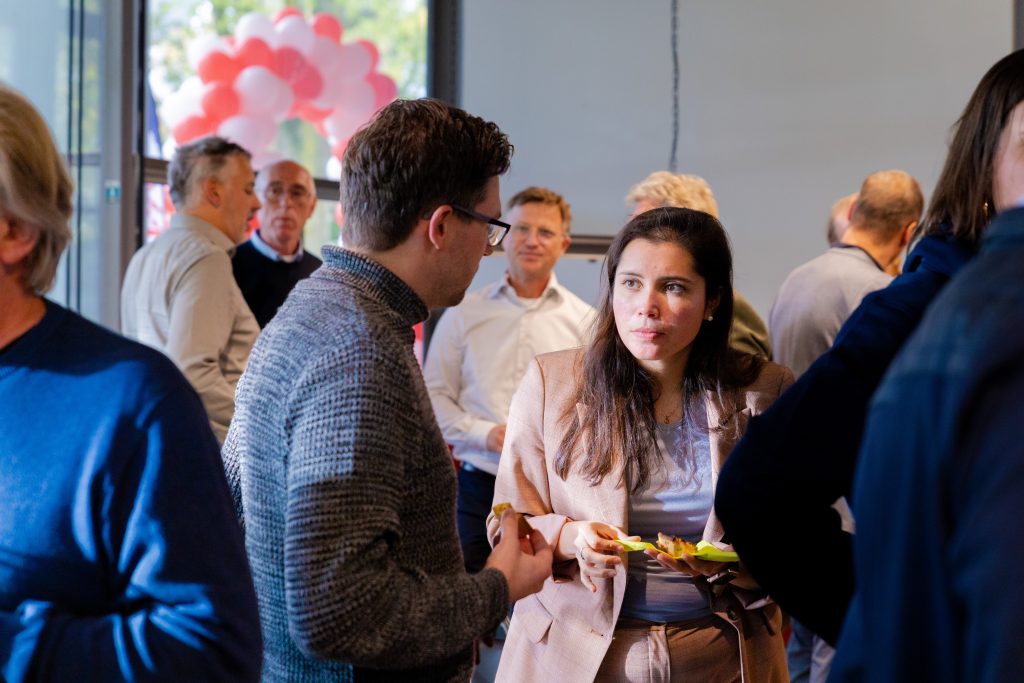
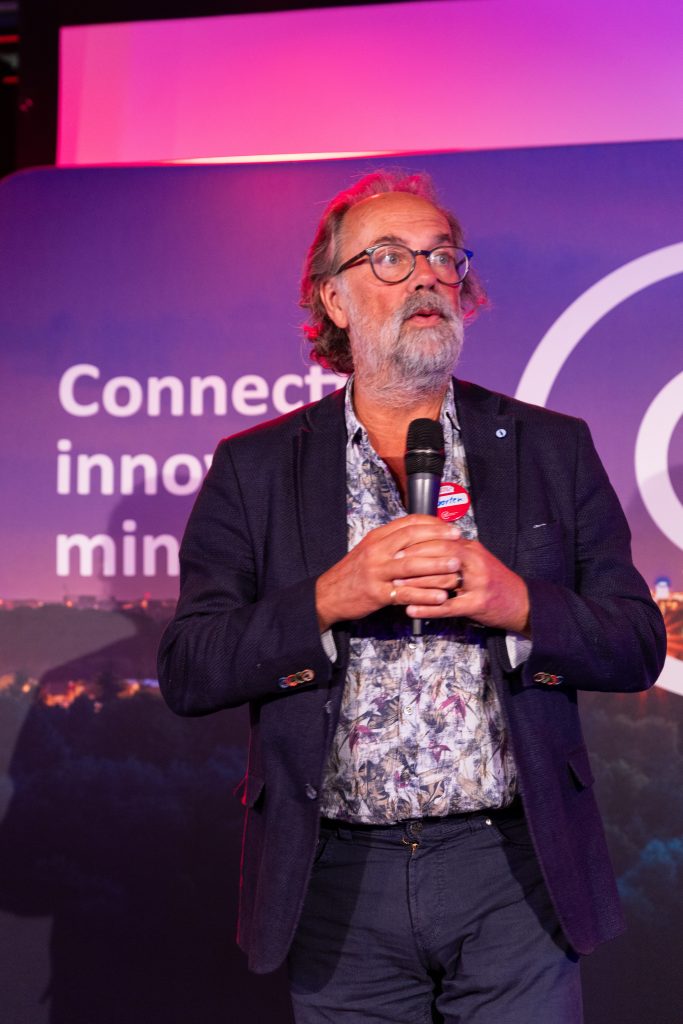

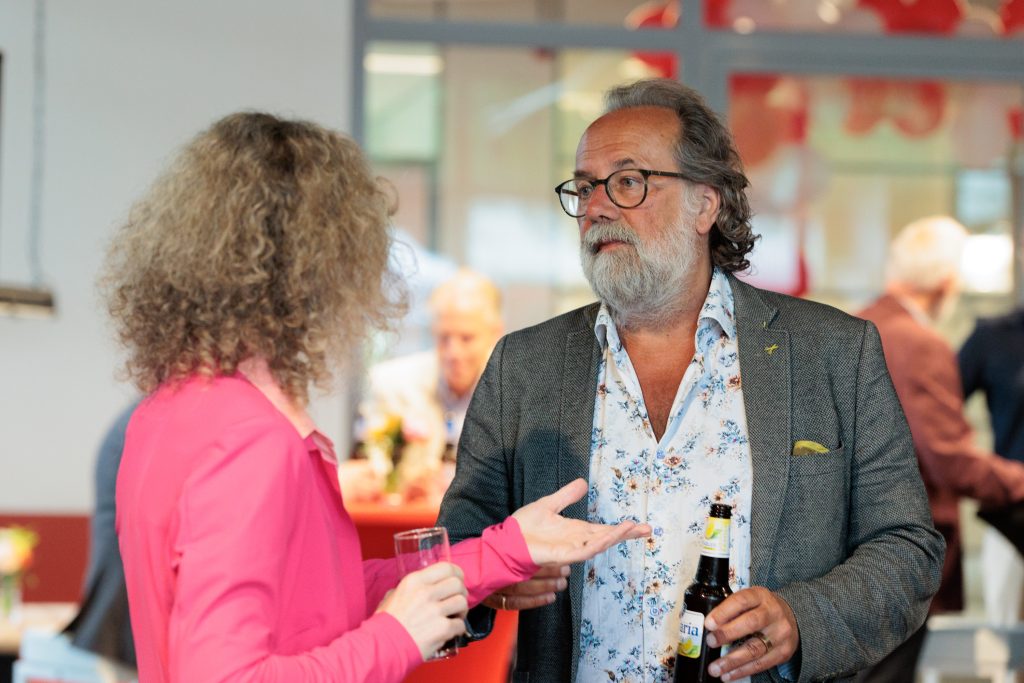
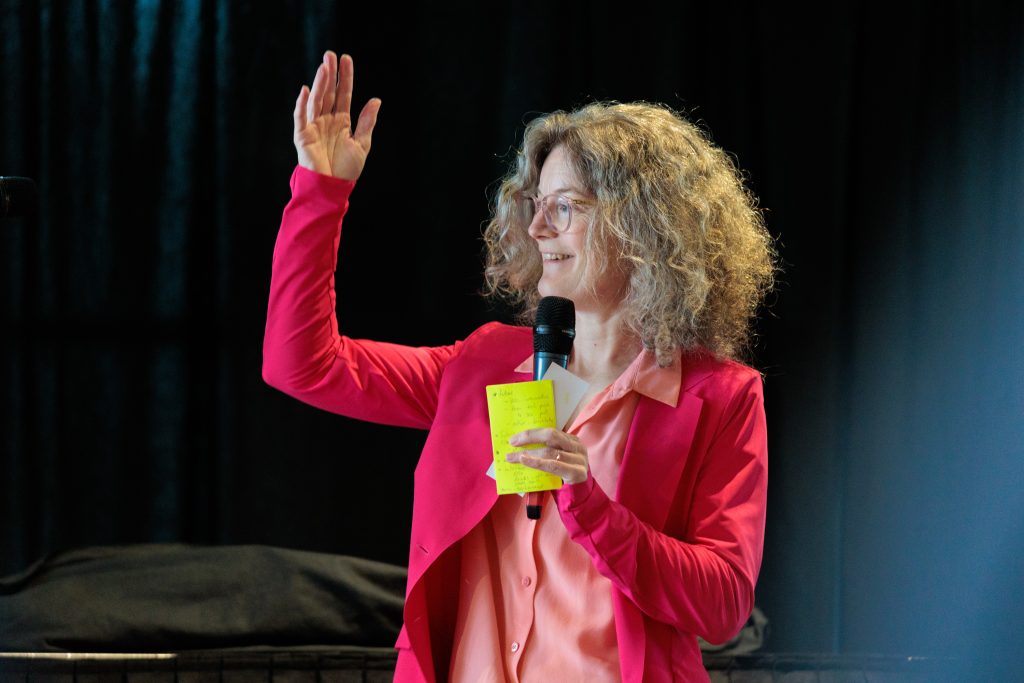
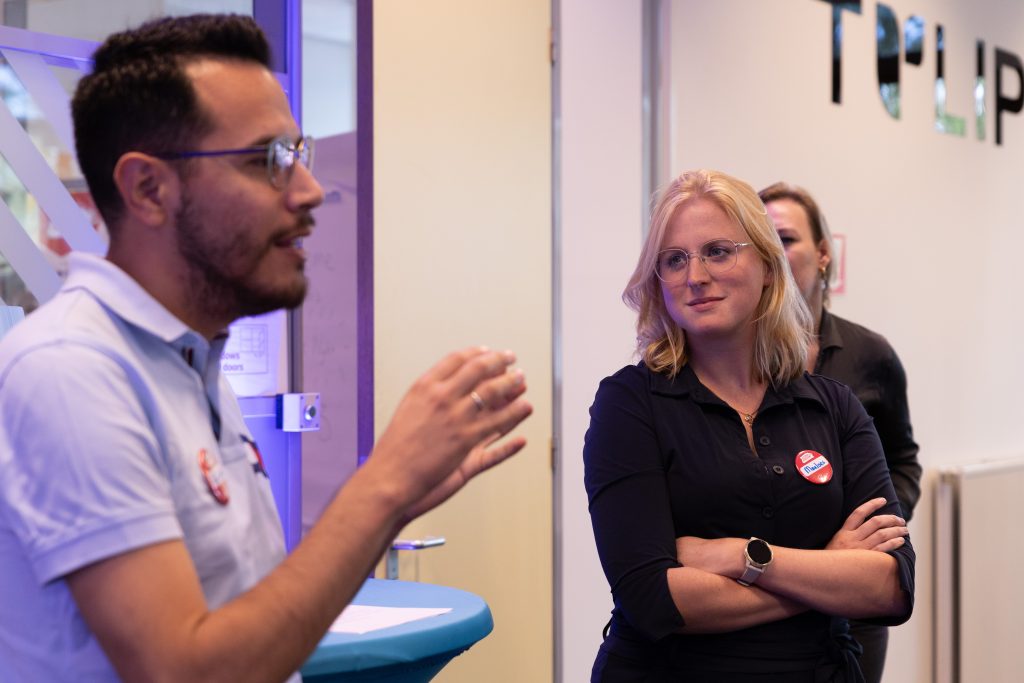
The project focuses on smartly addressing grid congestion, improving connectivity and creating a sustainable testing ground for innovations. The battery plays a crucial role in optimizing energy flows on campus and enables sustainable growth.
This reveal is for invited guests only.
Innovative solution for grid congestion: GENIUS project
As energy demands continue to rise, many regions, including the Brainport region, are facing significant grid congestion challenges. These issues hinder the efficient use and storage of renewable energy, putting strain on the local electricity network. With ambitious sustainability goals in place, there is an urgent need for innovative solutions to optimize energy management and ensure a stable grid.
Introducing the GENIUS project
A promising answer to these pressing issues is the GENIUS project (Grid Efficiency and Network Integration for Universal Sustainability). With €1 million in funding, the GENIUS project is set to pioneer energy efficiency and tackle grid congestion challenges. This initiative is a collaborative effort involving 13 partners, including Eindhoven Engine, and is part of its Livable Regions program
A blueprint for nationwide application
The project aims to smartly address grid congestion, enhance connectivity, and create a sustainable testing ground for innovations. With the GENIUS project, the TU/e campus will become a smart lab for energy transition solutions. Ultimately, this project will served as a blueprint for efficiently managing energy demand. The goal is to develop solutions that can be applied to approximately 3,500 industrial sites across the Netherlands, ensuring a more stable and efficient energy network.
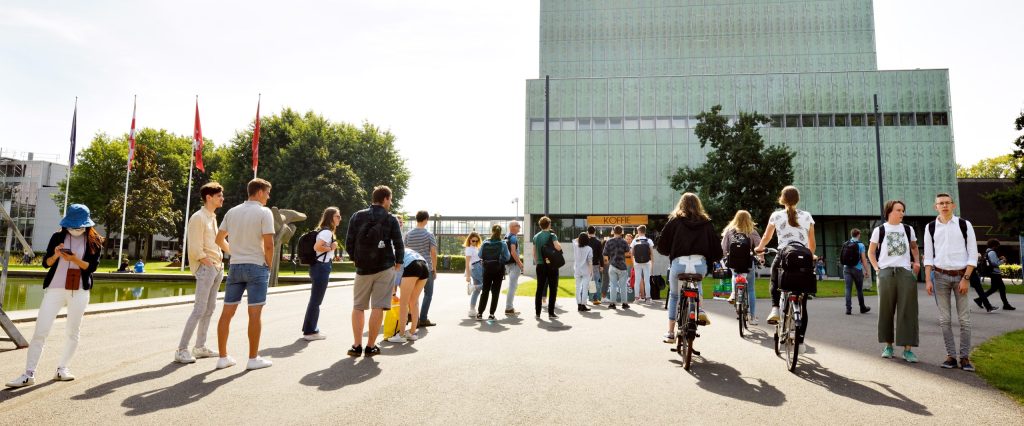
For more details, check out the article published by Innovation Origins.
New project videos: Advanced piezo-electric wafer stage project
Keeping up with the demand for manufacturing growth is the main challenge for the entire semiconductor industry. The Eindhoven Engine OpenCall project ‘Advanced long-range piezo-electric wafer stage’ therefore aims to demonstrate the feasibility of an ultra-short stroke stage using lightweight and compact piezo-electric actuators.
Ron de Bruijn – PhD candidate TU/e
My research is about wafer stages that are driven by piezoelectric actuators. These actuators make a mechanical contact between the rest of the machine and the wafer stage. Minimal disturbance or vibration in the rest of the machine could actually affect a wafer position.
Gregor van Baars – Projectlead TU/e & Systems engineer TNO
ASML is extremely successful with their current technology. The question lies in how much room there is for expansion. This research begins from a completely different standpoint, offering significant advantages but also presenting numerous challenges.
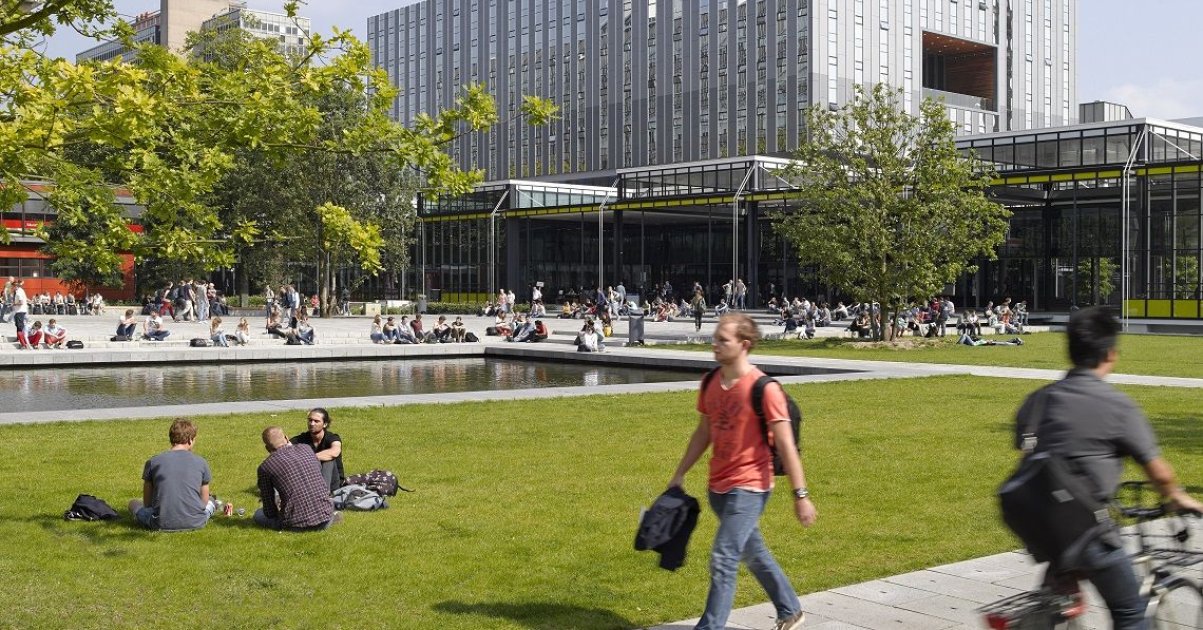
Program
- Opening ceremony
- Welcome by President TU/e Robert-Jan Smits
- Speech Wopke Hoekstra European commissioner for climate action\
- Reaction Heleen de Coninck (TU/e) and Ingrid Thijssen (VNO NCW)
- Short intermezzo
- Panel discussion on the TU/e green growth start-up community
- Short intermezzo
- Formal Opening Academic Year by rector-magnificus Silvia Lenaert
Celebrating five years of Eindhoven Engine
We had an incredible time celebrating our five year milestone, surrounded by great company and reflecting on our journey. From our ambitious beginnings to our impactful present. The celebration kicked off with an inspiring speech by TU/e Rector Magnificus Silvia Lenaerts, highlighting the importance of valorization, the strength of our partnerships, and our commitment to addressing societal challenges.
A special treat was the stunning musical performance by the talented artists from Impressariaat Kunsten van Fontys, adding a perfect touch to our celebration.
